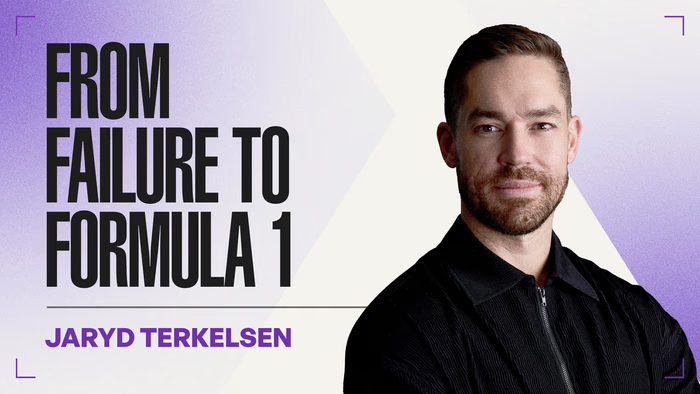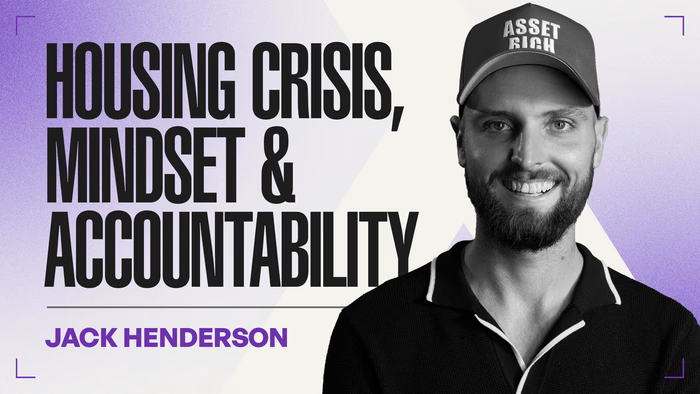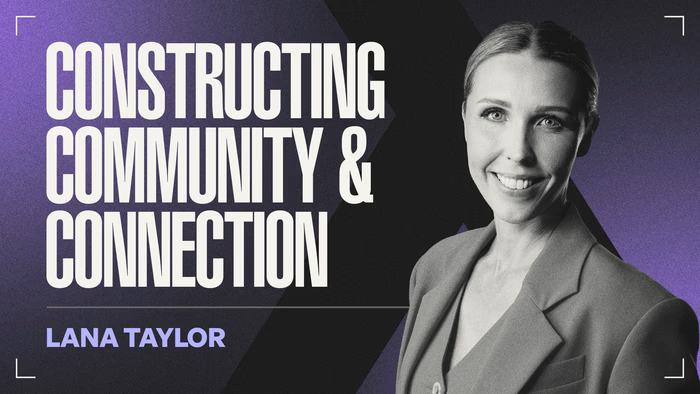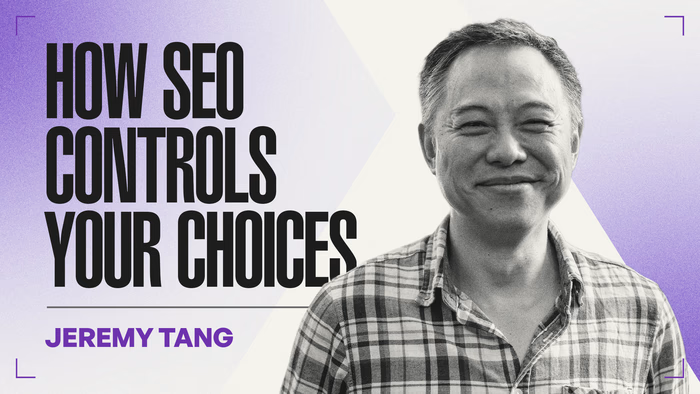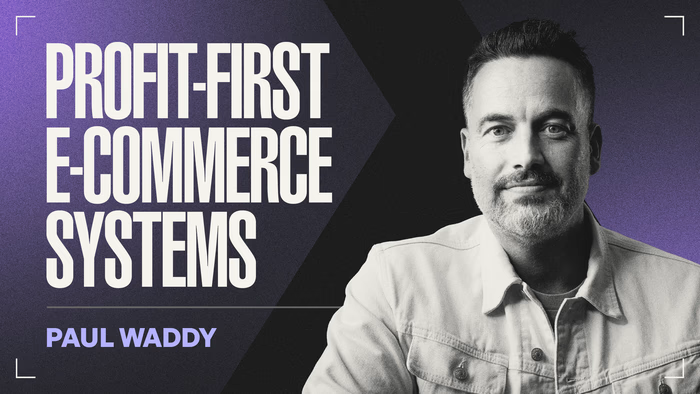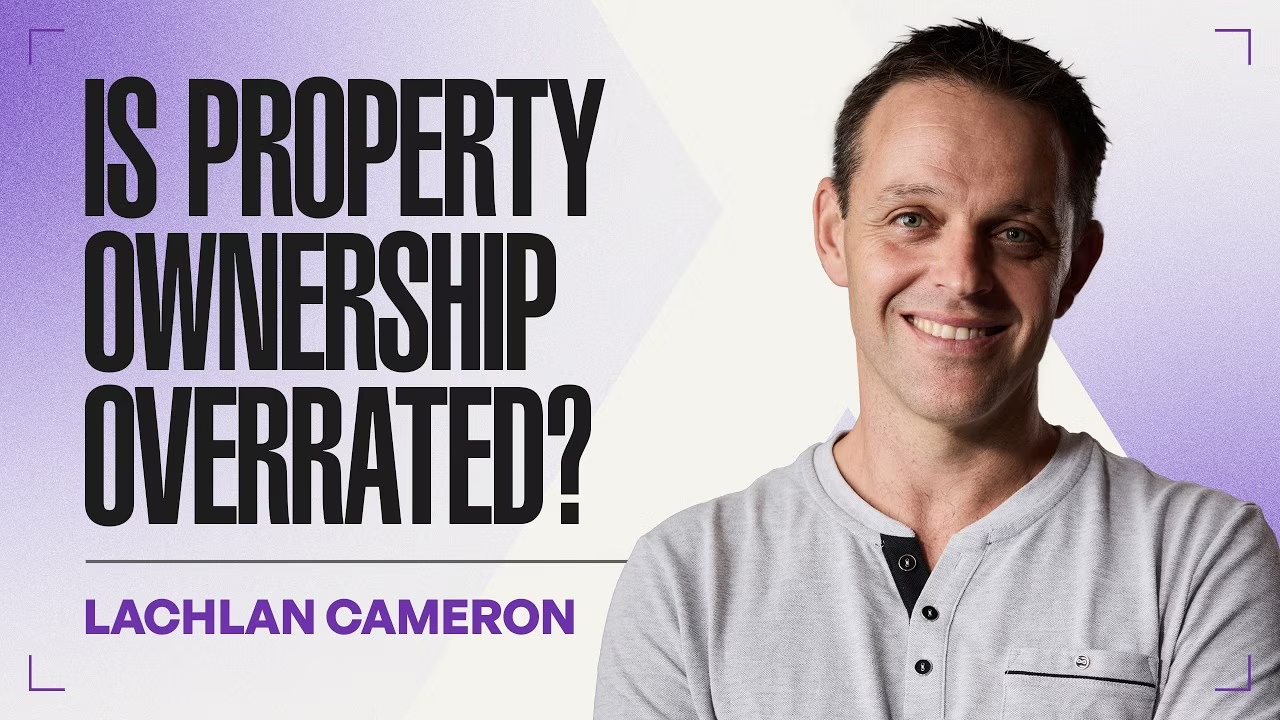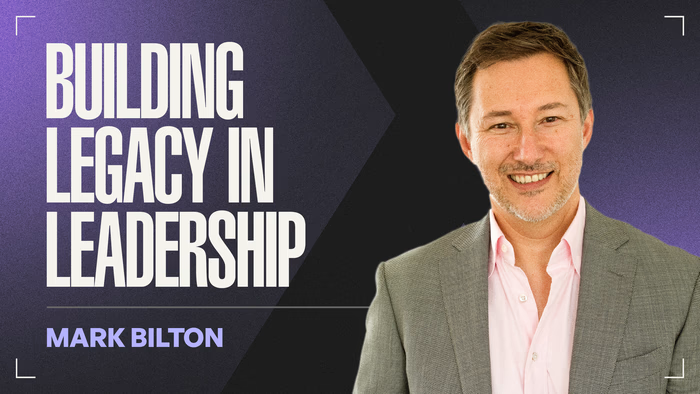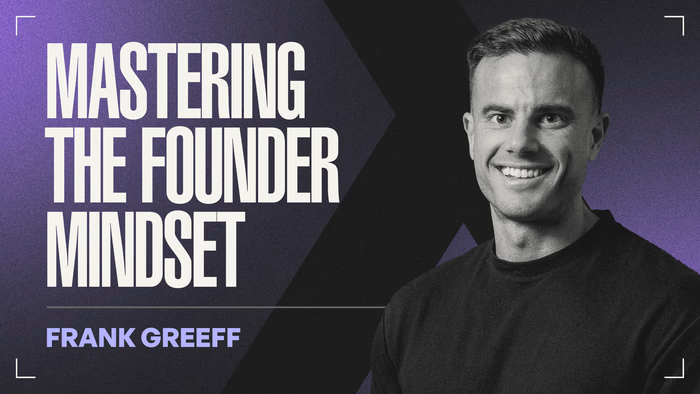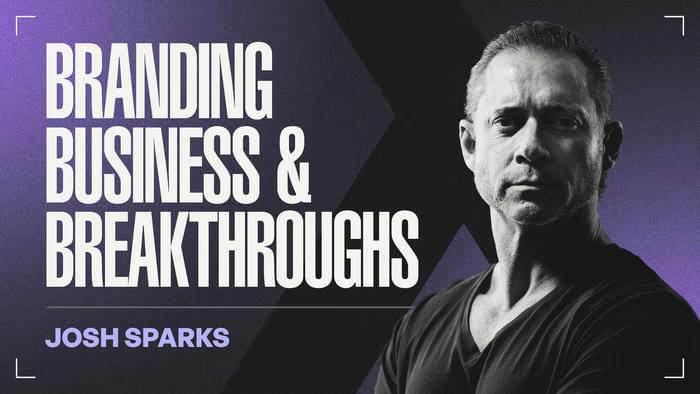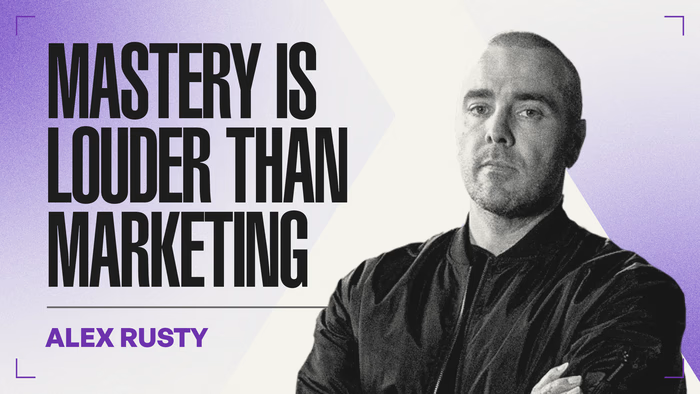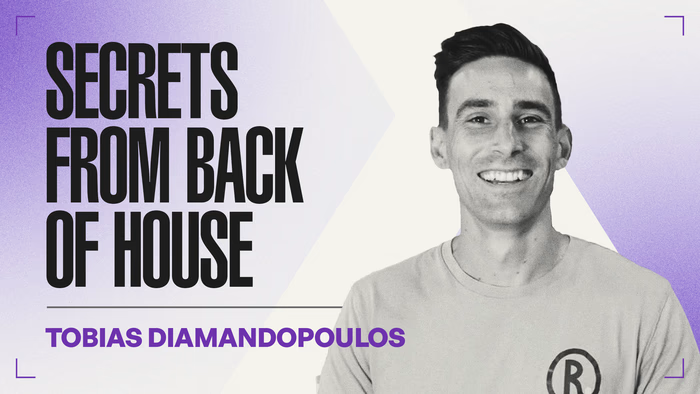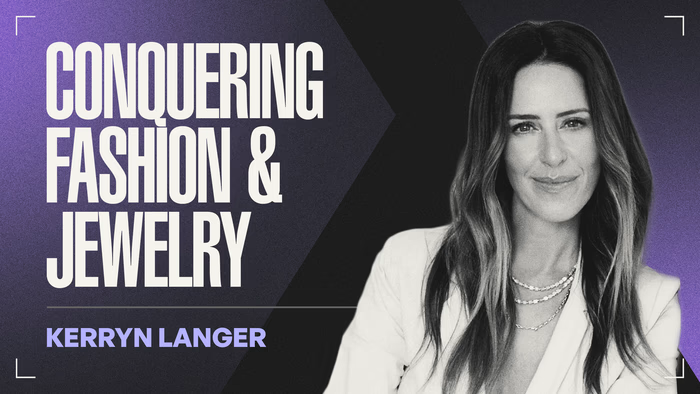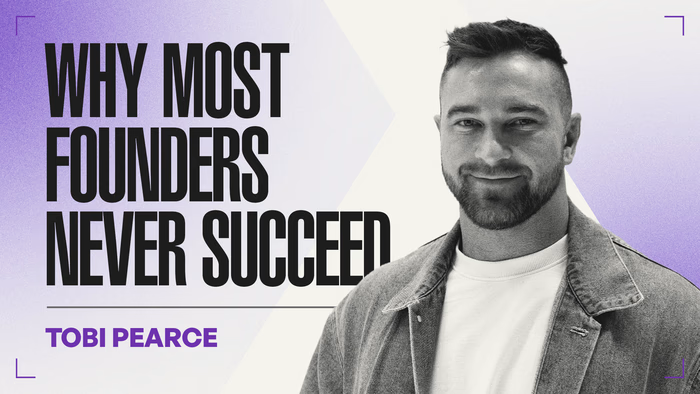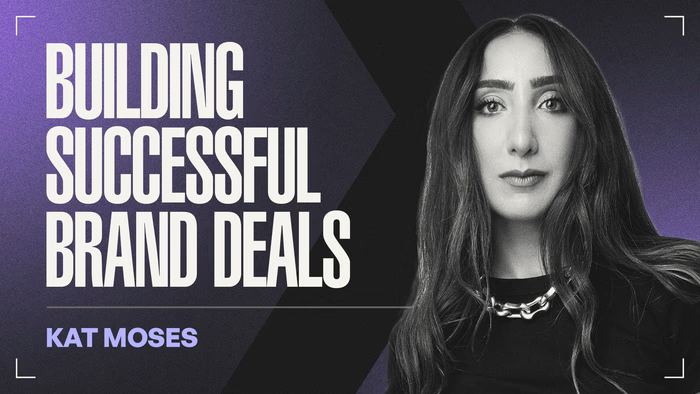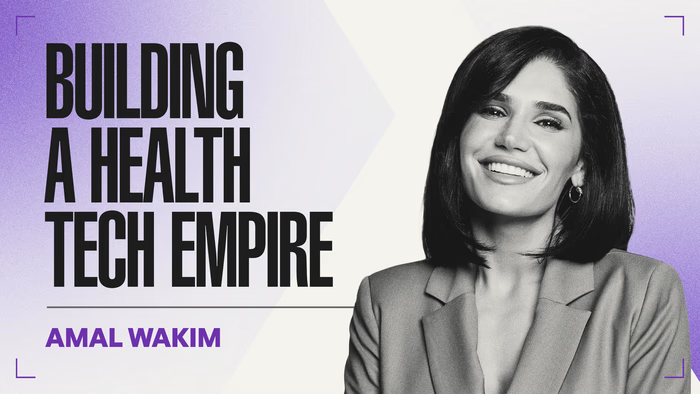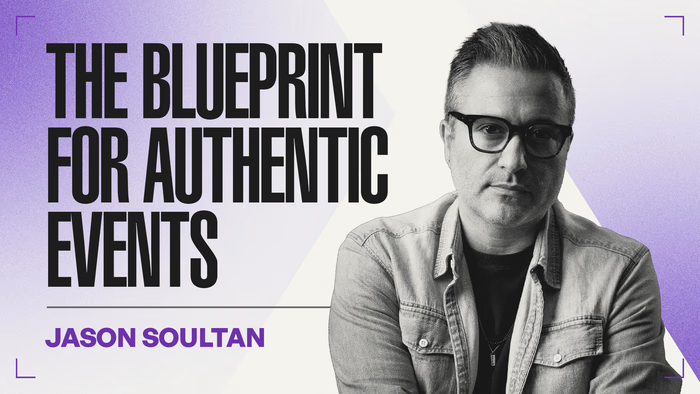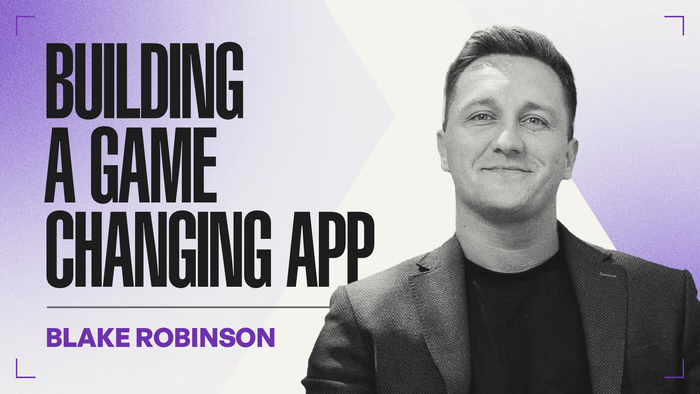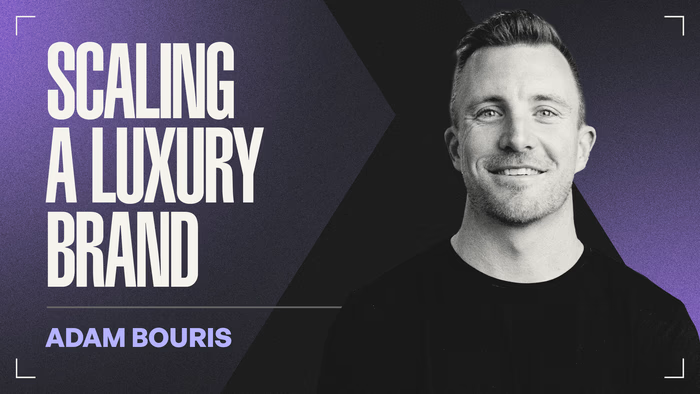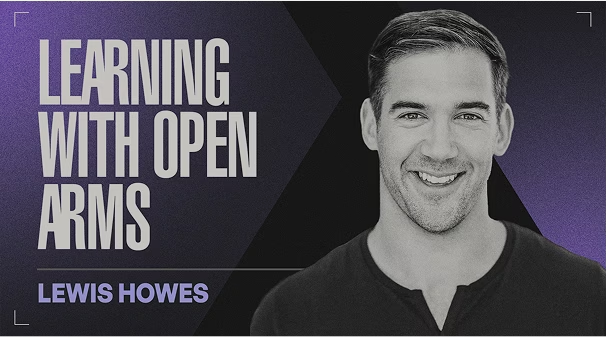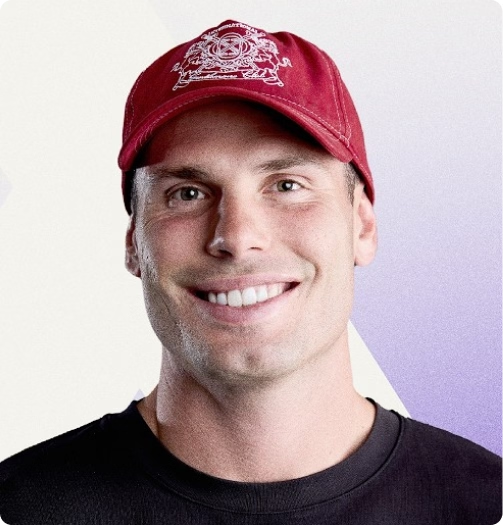


TLDR
Summary
The interview features Steve Chapman, co-founder of the functional beverage brands Shine (energy) and Hyro (hydration), discussing his journey through early startup failure, the necessity of personal mastery, and his philosophy on building purpose-driven businesses.
Steve's entrepreneurial fire was forged by an early setback: founding Faze Buy (a pre-Facebook Marketplace app) at age 19, which failed after Facebook shut down his integration. This led to an "identity shocker" and a three-year hiatus where he went "all in" on self-development, studying under a mentor, reading hundreds of books, and engaging in total commitment. This period was his apprenticeship for future success.
He now views entrepreneurship as a game with levels requiring obsession and tenacity. His brand strategy focuses on creating new market categories (functional hydration and clean energy) by identifying massive, underserved needs (e.g., "water is boring" and four out of five Australians are dehydrated). He emphasizes the need to "punch up" at major incumbents like Red Bull and Hydralyte by offering superior, modern science (like zero sugar and double electrolytes) while giving consumer nods to the existing category.
Steve stresses that longevity and impact are the true measures of success, not just profit. He aligns his business choices with his personal mission, adopting a "do good" philosophy influenced by his son, Harvey. His actions are guided by a "what would a good person do?" mentality, such as choosing to help a competitor rather than crush them.
Strategy & Mindset:
- The "Fire" System: He uses a phased approach to market entry, starting with hyper-localized density (e.g., five cool stores in Bondi) and then running geo-targeted ads to create a massive perception of demand, gradually expanding nationally through retailer adoption.
- Content: He created the Hyro Vlog to document the authentic, often boring, grind of building a CPG brand, aiming to inspire his son and future entrepreneurs.
- Customer Focus: He targets common upstream health problems caused by dehydration (fatigue, poor sleep, poor skin) and offers Hyro as the simple, effective solution to those underlying issues.
- Decision-Making: He aims to be proactive and decisive, using the game analogy to justify the immense work required and maintain momentum.
Highlights
- Founding Lesson: Early failure with Faze Buy led to a three-year hiatus dedicated to intense study and self-mastery, which he views as a necessary apprenticeship for his career.
- Hydration Market: Identified a massive market gap, noting that four out of five Australians are dehydrated, and created a "functional hydration" category based on modern science.
- Brand Strategy: His strategy is to zag when others zig; he outflanks incumbent giants (like Hydralyte and Gatorade) by creating a unique product with a superior formula, distinct modern branding, and zero sugar.
- Sales Strategy: Rather than aiming for national distribution immediately, he created density in micro-markets (five cool stores in Bondi) and drove local demand with targeted ads, forcing larger retailers to come to him.
- Personal Purpose: His primary drive is his son, Harvey, providing a deep purpose that helps him avoid self-sabotage and invest in a video diary of his entrepreneurial journey.
- Core Drivers: Success is built on tenacity, high self-belief, and the art of influence, viewing entrepreneurship as a game with specific rules and levels.
- Mantra: His commitment is defined by the quote: "How you do anything is how you do everything," which he uses to maintain high standards in his health, family, and business.
- Next Level: He sees the US market as the "Coliseum" where he must test his brand at the highest global level, viewing international expansion as the ultimate level-up.
Transcript
00:00:01 - 00:00:54
Four out of five Australians are dehydrated. Why? Cuz water's boring. Most people's health concerns they have most of the time probably have some upstream effect of dehydration. I think like poor sleep, fatigue, poor skin. There's a like hundred billion beauty market promising more hydrated skin. It's like just drink some water. Steve Chapman is a bold force in Australian entrepreneurship. As the co-founder of Shine, he transformed the energy drink into a nationwide success. He's now
00:00:27 - 00:01:14
scaling his next venture, a hydration brand called Hyro with ambitions to build it into a $100 million global powerhouse. But I look at life as a game. I've chosen the game entrepreneurship. I know there's levels to it. The more you play it, the better the levels get, the bigger the bosses get. Like if you win, you keep leveling up. If you learn, it's just like cool. That's one way not to do it. I think anyone can be an entrepreneur in the same way I think anyone can be a basketball player. Like if you asked
00:00:51 - 00:01:42
Michael Jordan like is he a basketball player? It's like yes. Michael Jordan has won it for Chicago. Like what about if you ask the kid who's playing street hoops on the corner? Yeah, man. I probably I probably did. I disappeared for 3 years. I was like put my head down just obsessed with like entrepreneurship and getting better. So then when I came back be far more successful. I love having a like tangible impact in people's lives. I I love the fact of how many people our brand actually touches
00:01:16 - 00:02:13
on a daily basis. What do you think are the necessary ingredients that someone has to have to really make it? This episode is brought to you by Wix Studio. What I like about what you've been doing is you've been essentially filming this journey that you've been on for how long now? Look, we started the the the building and hyro um episode. We're up to episode 17, I think it is. So yeah, since for the last like six, seven months now, I kind of wish I did it for the whole of the Shine journey.
00:01:51 - 00:02:39
There's like episodes that we like tried to launch or like I've got like little snippets of it. [ __ ] if I stuck to like the building public thing back in 2016 or something, it would have been wild. Um I remember why do you regret it? I think like one we would have been like super early on the trend and just like back to my intuition back like back yourself back then would have been I guess paid off massively now to kind of see that journey from zero to you know we did over 60 million in sales there
00:02:15 - 00:03:06
and 7,000 stores and I was like 24 and I was [ __ ] up a bunch as a kid and I think that just would have been fun for my own watch in for other people's watching. Um but yeah then I when I was starting high I was like all right I got to commit to it this time like don't don't miss out on that opportunity again. I I like this concept because you're seeing a rise or a renaissance in vlog content. Um, and you and I were talking about this before the pod, which is what inspired me very much at the
00:02:41 - 00:03:31
beginning was watching Gary Vee with the Daily V Show as well as watching Casey Neistat when I was a teenager. Yeah, same. Like I I remember yeah 20 I reckon yeah 14 15 I was on early days like Ask Gary Vee and then into his Daily V stuff. Um, and I was like that's cool. I'm learning so much. like you kind of literally can take what he says in a video, apply it to your business the next day and you get some results from it. And I thought like what a service what to give back like the brand
00:03:06 - 00:03:52
affiliation and love I have for that guy because of that is massive. If he then drops a book like I think I bought all his books because of that like value he's given us from that value exchange. So yes, I think Bill and Harry will sell a few more packets of salt but at the end of the day I think it's going to help aspire and educate the next generation of entrepreneurs. And it's like how can I help me who was that young kid when I was 20 like help him not make as many mistakes, not [ __ ] up
00:03:29 - 00:04:24
as much and get to his dreams, you know, sooner and happier. You went through, I guess, a baptism by fire very early on in your career in business. Uh, from what I understand was a business called Faze Buy. What exactly happened? Look, I I had a I was 18, 19, had like a big dream. I think I saw Zuckerberg just buy Instagram for a billion dollars after like 18 months. was like, "That sounds fun. I want to build an app that Facebook buys me for a billion dollars in 18 months." And I was like, "What is
00:03:56 - 00:04:48
a big enough of a moonshot that they can potentially buy? What's like a trend right now that I'm noticing in my own life?" And man, everyone was just doing these buyell swap groups on Facebook groups like moms in Northern Beaches, Mossman buy swap groups, selling textbooks, dresses, whatever it was, used cars, clothing. Um, and I was like, and then I could see these little like comments happening. there were like little auctions happening in in the posts and I was like people are moving
00:04:22 - 00:05:12
away from eBay. Social selling feels a little bit more um the future where you have like some affinity to a network and you kind of like have some trust and it's a bit easier than an eBay with expensive listing fees at the time. So I was like yeah let's build what is now Facebook Marketplace um before Facebook Marketplace. I just kind of thought they would get into it and then they would buy me instead of trying to break me. Um and then yeah got got started built out an app um integrated with Facebook
00:04:47 - 00:05:41
integrated with Twitter had your social sphere kind of built into it had auction system payments integrated with PayPal like this is back in 2012 2010 2012 um and yeah launched it went really well got a bunch of press I was like a young 18 19 year old kid trying to take on Facebook so got a bunch of press and things like that we had 10,000 plus downloads when like one of the top lifestyle apps in the app store and then yeah got a cease and decision this letter from from Facebook. They'd shut
00:05:14 - 00:06:11
down my integration, shut down my app. And then I loyed up a little bit, tried to kind of start that discussion and realized like I'm a kid in Australia with uh borrowing some money from my dad. Uh no point going to like war with with Zachs at that time. So yeah, end up um just yeah rolling it and that was the end of Face Spy. I think what made it the hardest point at that moment in time was I think I'd like baked my identity to it. like everyone I knew in my social graph was like known me as this Facebook
00:05:42 - 00:06:33
guy I was in the newspapers and I was kind of like destined to succeed and then overnight like it just disappeared and I was going to raise some money from VCs we're in discussions with but my dad ended up giving me a loan for the kind of start of the development and things like that so I end up losing like all my dad's money and we're not a wealthy family that meant a lot to him so I felt like just a big failure man I I let my dad down I publicly felt really embarrassed and ashamed I'd left PWC
00:06:08 - 00:07:01
which was like a kind of corporate job which was like the future was promised to fail in pretty quickly at at 1920. So yeah, it was a big identity shocker I think when you fall from heaven and you kind of like it's a false heaven. I wasn't supposed to be up there. I hadn't done the work yet. I hadn't done the reps. I hadn't had the skill set or the talent. I think I got lucky, you know, to put myself in that position. But to handle myself going forward to build a sustainable business. I always think
00:06:34 - 00:07:23
about it now like if I was a young kid again at 1920 like trying to take on a hundred billion dollar company like from the get like that's a not just a home run at your first you know like baseball swing. It's like you're trying to hit a [ __ ] Hall of Fame shot like coming up against like one of the best pitchers. It's like why are you doing that to yourself? Like you probably like chances of you hitting it perfectly out the gate is is very very very low. So your chance of failure is very high and it's going
00:06:58 - 00:07:50
to take you a massive setback. I think like get some get some like first bases like get like a simpler business model that's maybe already working in the US or give a brand or a franchise or something like that which you kind of like have some guard rails of success like yeah you're not going to get 100,000 times returns but you might get a 20 times or 50 times and it gives you the momentum to kind of keep building from there. I think you definitely kind of get, you know, in all of these
00:07:24 - 00:08:13
startup situations, every time I've tried to start a business, you always end up taking some kind of hangover of skill sets away from it. Like whether it be mistakes or, you know, things that you figured out that do work, you then take them into the next business and you start to like stack these skills together, I guess. Take me back into that moment when you were 19. Like how did you feel at that very moment? Um, did it seem like all hope was lost? Like how quick did it um take you to kind of
00:07:48 - 00:08:49
bounce back from that? I was very anxious. I think I was very look shame is probably the word, man. I felt I felt like I'd like I was a big like trying to get acceptance from others and my dad and like let them both down in one foul swoop was pretty upsetting. Um took me some bit of time. Like I I was I went very much in a shell. Like I kind of had like let's say 3,000 friends on Facebook back then. I kind of deleted most of them and went down to 500. Like I kind of was very social and I just
00:08:19 - 00:09:19
After that point, I end up partnering with a um very successful entrepreneur as his like apprentice PA and I disappeared for three three years. Like I was like put my head down in the lab in the gym reading, studying, just obsessed with like entrepreneurship and getting better. So then when I came back be far more successful. But yeah, man, I probably I probably hid. When you were hiding, like what was it that I guess allowed you to find the strength to decide, okay, I'm going to have another run at this thing? I think
00:08:49 - 00:09:36
the love of the game. I I love building businesses and building brands and entrepreneurship. Like I was never going to be like on the sidelines forever. It was a very deliberate like three year hiatus, let's say, where I was like, I'm going to go like stop drinking. I stopped socializing. I got up every morning at 4:24. I read hundreds if not now probably like over a thousand like entrepreneurial biographies and books and non-b businessiness books and philosophy and things, you know, like
00:09:12 - 00:10:18
like meditations every day, gym every day. Like just obsessed, man. like I was all in for those three years and that just built me up to the point of like I knew I had it in me to then kind of swing for the fences again. So in that period like what did you learn working with and for someone else cuz I think sometimes entrepreneurs try to go straight to entrepreneurship but sometimes a nice I guess um how would you say like um incubator or apprentichip is a great way to put it is to actually go work for an entrepreneur.
00:09:45 - 00:10:33
Yeah. And and a book that I read that probably framed this up perfectly was Mastery by Robert Green. And he talks about most of the greatest masters, let's say, of all time all had this kind of apprentichip apprenticeship era. And they all worked for someone who had more success and experience at the time, absorbed as much as they could from them, and then went out and did their kind of craft and their life's work. And that really deeply resonated with me at the time. And I think it was like one of
00:10:10 - 00:10:54
those things where just dipping your toes into it, you don't get the results from it. Like if you go 80% into something, I think you get 80% of the results. If you go 100% into something, I think you get like a,000% of the results. Okay. I think it's like a winner takes all mentality of like massive exponential compound returns. And like hence why I went like all in like I literally was his PA. I didn't get coffee with him once a month. I just don't think you can get true behavior
00:10:31 - 00:11:23
change. I don't think you'd absorb like just through a mo osmosis like just being in the room listening to the nuances, listening to body language, watching every key strategic high or decision or fund raise or fire or things that don't go well. Like you get this like immersive like augmented reality like play out of like and then you can be sitting there going, "Oh, if I made this decision, how would that play out?" And then you get to see in real time like, "Okay, that didn't work out. I'm
00:10:57 - 00:11:44
still not calibrated. I need to keep learning that." or interesting that worked out. I'm really good at back in people selection or I'm really good at back in, you know, negotiations or something like that. And then you kind of start knowing what skills in entrepreneurship you might be better at than others, where you need to maybe cover for from future hires, you know, how to pick businesses, what to invest in. Like I think you just get this like immersive experience like it's like
00:11:21 - 00:12:11
yeah, an MBA but like in real life, not in the classroom. And yeah, I like people would pay, you know, like if you go talk to a Grant Cardone or Gary Vee, like they probably charge 50 grand, 100 grand kind of for a mentor session. It's like I'm getting mentored by a billionaire and he's paying me 50 grand. Like so like whilst I got paid 50 and being a PA, people like, oh, you know, like that's a [ __ ] deal. It's like, bro, like you pay hundreds of thousands of dollars for that, like for that
00:11:46 - 00:12:39
experience and you know, had enough to pay rent and kind of buy some clothes, but that's about it. What was the the biggest takeaway from all of that? And then how did you then bounce into shine? Look man, I I think everyone's different and I and I think when I first started my self identity was quite damaged from Facebine and my self-esteem was probably quite low. So I think I was like I threw out all of Steve and just like adopted 100% of Sam. And I think that's a mistake that some people could make.
00:12:13 - 00:13:01
It's like I have a bunch of stuff that I'm better at Sam at. He's a bunch of stuff he's better at me at. But like at the time I didn't believe that. So then over time I was trying to be more more more like Sam which is just not me. It's not natural. It's not authentic. You know, he's got his world views, I got my worldviews. So I think over time I kind of like found myself again through that process. And um became really crystal clear on like my values and his values
00:12:37 - 00:13:35
and they're they're different. Business owners, if you're stuck using one platform for every project, you're probably stuck in a growth bottleneck. More clients means more hires, which just adds noise and cuts into profits. To break the loop, you need flexible tools that don't stretch your resources. Wix Studio is a smart addition to your business toolkit. Intuitive by design, your team can quickly master the platform and focus on the work that matters the most. Then keep up the
00:13:06 - 00:14:16
momentum with a built-in management tool. A unified dashboard, reusable assets, and a Figma plug-in that turns static design into launch ready websites. With robust native business solutions like bookings, e-commerce, and events, you can take any project at any scale without the added cost of third-party plugins. Plus, Wix Studio is a lowmaintenance platform, meaning you can redirect the client budget towards real growth initiatives. Think more value for clients, steady income streams, and stronger relationships. To
00:13:40 - 00:14:39
get started, simply go to wix.com/studio. Now, if you look at, I guess, the meta concept of branding, is it the fact that you're selling a drink or do you see it as I'm trying to sell a lifestyle or something beyond the product? I like thinking particularly um I don't know when I was but like Mazo's hierarchy of basic needs and like the very basic basic need before anything else in the world is like food, water, shelter. And I was like if you can sell one of those three things like you
00:14:12 - 00:15:00
probably got an endless need state forever. So it wasn't like we're going to need this one time and not need another time. It's like no like every day for the rest of our adult lives you'll be drinking something like you need water. It's not going anywhere. AI can't [ __ ] with that. Um, so I've always liked the concept of playing in the like and then the second like barrier um in Maso's hierarchy is safety and security which like health plays into it and then there's like belonging and like
00:14:36 - 00:15:24
community which plays into that and then there's the like sense of um respect and and um and status and then there's like selfactualization and I think if a brand can play all five levels of Mazo's hierarchy it's in a very good place long term. So I think with hydration that's not going anywhere. But having four out of five Australians are dehydrated. Why? Because water's boring and it's like no one's drinking enough and everyone's been told since the beginning of time to
00:15:00 - 00:15:45
drink more water and they're not. And it's like okay, how do we make it fun? How do we make it flavor flavor um delicious flavors and how do we make it functional? So you actually get more from your water. You're getting more hydrated. Your cells are actually absorbing what's you're drinking from water. And then from a brand perspective, how do you then play into health? So like natural, low sugar, make it um packed with just like clean ingredients. And then from a brand perspective, this is built with
00:15:22 - 00:16:08
community in mind. So like run clubs and gyms and it's quite a social drink where you can have when working out or in a sauna or um at home with family and friends. And then from like it actually does help you think and feel and do better and the branding is quite premium and it feels kind of cool and on trend. So it's like gives people a status and a sense of identity. And then from a self-actualization, it's like, yeah, like this actually helps people find the hero within and it kind of unlocks their
00:15:45 - 00:16:33
best self and it kind of you're not your best self when you're dehydrated. I guarantee you that. So, definitely not. And and like how Nike, I guess, make, you know, good shoes or what have you. And especially in the 80s, they were really trying to pioneer the whole running space uh by being one of the first adopters of, you know, this new technology of how to make souls and shoes and all the rest of it. But if you look at it now, it's really about making the I guess the consumer the hero of the
00:16:09 - 00:16:57
brand. Now, when you're thinking about the consumer and how they're looking back at this, because if you're creating a new category, how do you get the market to adopt that? Okay, this is a new category and I want to be a part of it. Yeah, I always think about like N plus one, like what's current state and then how do you like add enough difference to make sure people as a cue visual cue can kind of know this is different? Like in Australia from a hydration electrolytes perspective,
00:16:33 - 00:17:18
there's like two old schools of thought. There's like sports drinks like parade Gatorade and they have 92% of a billion dollar category in Australia and they're in service stations in plastic bottles full of sugar and neon flavors and colors and like athletes get sponsored to talk about them, but no one actually drinks them. That is healthy. It's like for hung over tradies. And then on the other side, you got like Hydrolite. It's like I've had a really rough night. I've
00:16:55 - 00:17:42
got diarrhea and I need like something quickly and you go to the chemist and you buy it and it's very medicinal. It was made in the 80s based on the World Health Organization standards of rapid rehydration therapy. And if you're like in subsahara Africa like not a bad thing to have like I don't want to dis disrespect its kind of like formulation. It is based on World Health Organization standards but like we know a lot more about like performance science and food science and nutrition and like what we
00:17:19 - 00:18:04
sweat out in exercise and things like that. We know way more now than we did 20 years ago. So like our formulation is based on today's science, not 20 years ago science. Um, so we've got like double the amount of electrolytes in there. We've got magnesium in there for muscle recovery. We have zero sugar where a lot of traditional people like you need sugar for hydration. It's like you like we have a lot of sugar in our like glucose and stuff in our bloodstream already. Like we don't need
00:17:41 - 00:18:31
to add more and drink more. Um, and then from a brand perspective like I think it needs to look and feel very different. So obviously like the packaging's like bold and the type font and like we end up working with like an expert um you know heaps normal the beer. So Peter Brennan who designed and kind of co-ounded that he's fantastic. He's a legend. So got him on straight away was like I need your help with brand and needs to stand out. We looked at every other competitor on the market in
00:18:07 - 00:18:49
Australia and globally and we're like all right like that's not what we're doing. Like and so many brands go how do we fit in the middle of that because we need to like look and feel a certain way. It's like cool we're going to zag when everyone else zigs. So, you went right outside the box. We're not going to look, act, behave, talk like anyone else in the category. We're just going to hit it all different design, voice, packaging, you know, what's what's described in in to be in the
00:18:28 - 00:19:15
ingredients. And obviously, the design is exceptional. I like what you did with the Y in the middle because obviously you can animate that and do cool stuff with it. And the colors really pop. And then as far as the I guess the branding goes, like how do you go about educating a market on the depth that you just went into when they're shopping, when they're looking at something by a glance, when they're not really thinking about it? How do you then start to train an audience to start caring about the
00:18:51 - 00:19:41
benefit that your product can give them? Yeah. And that's why I love DOC. Like it's so like social first branding like is storytelling, is content, is like pulling people into an education system, you know, like you have a fullfunnel approach on this. It's like how do you get their attention is one thing and in a store like if I'm shopping a shelf you got 3 seconds and if you don't win and convert in that 3 seconds you're kind of out where on socials and with like ads and with emails and with website and
00:19:16 - 00:20:10
content and copy and storytelling videos like you have this journey you can take people on to educate to entertain to build that first purchase into like love into brand affinity and repeat purchase in subscription so I I I like DOC for that purpose um so yeah we need to like educate them quickly But at the same time like you can probably talk to them five or six times like through ads and frequency and things like that to get and by DDC you mean direct to consumer through social media content. Yeah.
00:19:43 - 00:20:29
Yeah. And if you were to say what are the additional channels like obviously you have the YouTube channel for what you're doing with Hyro uh you have your Instagram channel. What channels are you thinking about when you're trying to educate DTC? I think when you start a business like you just don't have the money and time to do everything. So, like we've went hard on Instagram and we went hard now a little bit on YouTube. Like, but I wouldn't even say going hard like we've spent no money there. I just
00:20:06 - 00:20:58
record some stuff for the for the vlog, but it's pretty much Instagram. But it's like we're just starting to dabble in Tik Tok. Um, but I think if you can just do one channel better than like very very well versus like five channels average, I think you're going to get way more exponential returns. Um, so yeah, Instagram and then that's a combination of like let's say like organic, ambassador/influencer and then paid would be the kind of three main drivers of that. Okay. Can you unpack all three
00:20:32 - 00:21:20
of those and how you hit them differently? For sure. I think organic is how do you go viral? Like very top of funnel. How do you grab attention? How do you start telling the algorithm the type of people that are interested? Um, so it's like really brand awareness, top of funnel. Um, virality is kind of like six out of 10 posts is going for that. I'd say three out of 10 is like middle or funnel building interest, desire, education. Very much like you've heard of hyro potentially, you've heard of
00:20:56 - 00:21:44
electrolytes potentially. Now we're kind of like educating people on the differences or different flavors or customer reviews or like building some intent and some desire to purchase. And this is through posting like reels or graphics. Re and and carousels are probably a one-two punch at the moment, right? Like educational carousels, educational reels. I think on social like most people looking for entertainment. Like 8 out of 10 I'm going to say is entertaining. And like being visually appealing is kind of like
00:21:19 - 00:22:09
nice, educational, but like I generally think we want to entertain and educate at the same time. Um, and then one out of 10 posts is like bottom of funnel. I would say like very salesy, very like 20% off of Black Friday or new flavor drop by now or like we're back in stock buy or like very like this is what happened in hierro for the last week like very bottom of funnel. If you already know hierro no electrolytes potentially purchasing like you got to serve that audience once every 10, let's
00:21:45 - 00:22:43
say. So, that's how I think about organic. Um, kind of through a funnel approach. Um, and then paid, I'd say it's probably less like of a three-stage funnel. I'm kind of going top of funnel and bottom of funnel. Um, again, you know, a mix of founder first, mix of UGC, a mix of ambassadors, mix of fear of fear of missing out, um, some statics, some educationals. There's like a bunch of ad formats you could try there and then try different audiences around different use cases. So we've got
00:22:13 - 00:23:04
a pretty broad um potential base of use cases. So everything from like hangovers to travel to sports to athletes to sauners to first thing in the morning to afternoon pickme up to pregnancy breastfeeding to um you know like team sports versus running versus high rocks. Like there's a lot of potential use cases for this. And then you kind of like dial that in on like um audiences. So like the people who might be doing a sauna, you could have the corporate plus the student plus the mom. Like you've
00:22:40 - 00:23:25
got a few different people of each audience. I try and just m matrix that out if you can picture something big. Yeah, because I can imagine like it's a river going downstream and then it breaks into 10 different streams and then 50. So you're saying like those different channels might be one might be sauners and then that breaks it off into a whole ton of different people. How do you know which streams to follow? Um because obviously you can't manage them all at the same time. Do you just try to
00:23:02 - 00:23:56
pick the ones that have the highest ROI or do you pick the ones that are the closest to the identity of the brand? I think like the the genius of like Meta and Facebook is like what one person sees isn't what someone else might see. So I I I'm always like brand first. I'm a big brand guy and but like how that brand shows up in someone's life it would be very different. Like some it's a bit more of like a motivational aspirational brand. Sometimes it's a bit more of a very functional like I love
00:23:29 - 00:24:17
electrolytes and like I know I need electrolytes and these guys are my favorite flavor. So like it's a flavor call out over here versus this person over here thinks the packaging looks cool. So I think like I don't want to be too arrogant to think like my brand is what I see in my head of it. It's like it exists bigger than me. It's it's to your point like the customer is our hero. We want to be like at a show up and support them achieve their goals and like help them achieve their best life.
00:23:52 - 00:24:39
Um so yeah, sometimes that's a longevity customer who's like aging and like hasn't ever drunk water in their whole life and for the first time feeling like energized to go for a walk with their kids like or their grandkids. Like that's a beautiful thing. that's not going to be on their website, but like that in an ad format and or like could be could be really resonant for them. That's a really good point. We we kind of refer to that, I guess, at least here internally as like the core of the
00:24:16 - 00:25:06
brand. So like the core being like why does it exist? Who is it for? predominantly like I could say, you know, well, if we take if we just take Nike as a use case, um they could say, well, we want to target athletes, but then meanwhile, there's a huge myriad of people that want to buy Nikth. Yeah. Retirement uh folks, you know, you know, playing tennis on the weekend, can wear a pair of knives, no problem. But like the brand kind of has a core ethos now, it's about like pursuing greatness and
00:24:41 - 00:25:29
winning. And then I think, you know, obviously you can hit these campaigns and like have a campaign for hangovers and, you know, pair up with a festival or then simultaneously have a campaign for athletes and pair up with high rocks. Um, but you're saying that there's a core to your brand and then there's like a different deployment for a different reason. Yeah, I think I think you can shop in how this would impact their life. Like a run club versus a hierox is a different use case.
00:25:05 - 00:25:53
like you're talking recovery, muscle function, doms, you're talking, you know, when the next hierarch event is and hydration prep going into that versus a runner. Again, you're talking shoes and nutrition, you're talking gels, you're talking um, you know, Sydney Marathon coming up and kind of how to activate around that. So, I think knowing how your brand might show up in their life, not how like you think it shows up in yours. Right now, when it comes to going headtohead in the market,
00:25:29 - 00:26:26
let's just let's just say we're going headtohead with a Red Bull uh with a with a drink like Shine, for example. Not that you are going headtohead, but like in in essence, they're kind of the predominant incumbent in a category. Now you're trying to create an adjacent category. Um, most founders have fear going head-to-head with giants like this. You outflank them by creating kind of a new lane or a new category. What's the advice that you would give to someone who's thinking
00:25:57 - 00:26:56
about category creation versus competing directly in the market? Um, I'd do both. I would I would create your own lane, but like punch up. Um, in terms of like you always punch the biggest gorilla in the room, so to speak. We we talk um we talk about 50 Cent before we jumped on the pod. Like I think he was quite famous for using that strategy with JR. Yes. Jar was way bigger than him. He kept dissing him. Jaral ignored him. Ignored him. And then finally he rebuted on and kind of tried to come at 50. 50 blew up and then 50 as
00:26:27 - 00:27:17
soon as he became bigger and never spoke about Jarrell again. And I think that's kind of a good business strategy to deploy where you know people are familiar with certain trademarks or brands out there or products in the world. And I think getting familiarity and leverage off kind of existing need states in the in the in the world and kind of if something's so brand new they don't even know where to put it in their brain and how to like categorize it. I think you kind of lose people in
00:26:52 - 00:27:43
confusion. So I think you need to kind of like give nods to the predecessors, give nods for consumers to go at least how do I even use this? Like where does this product even show up? Is this a sleep thing? Is this a energy thing? Is this like the basic need states of humans don't really change that long over like no people naturally want to put things into a category. So is if they don't know a category a category exists their brain naturally goes where do I pigeon hole this? Yeah. Is this
00:27:17 - 00:28:13
something I have at a park like a picnic with friends? Is this something I have in my first thing in the morning? there's only like that many times a beverage or like a supplement could enter their life and it's like getting some nods to like okay some hints to where this shows up in is going to be helpful for actually adoption of behavior. Um, but look, if I look at Shine and I look at Red Bull, I think you can say it's format in a can, its placement in a shelf next to energy drinks, it's carbonation, it's like it
00:27:45 - 00:28:31
says the word energy on it. Like it's given enough cues to be like, "Oh, this is probably something close to a Red Bull." And then it says words like better or neutropics. And now it's like, "Oh, but it's new and different. It's zero sugar and it's got new topics." And now you're kind of like getting some fun bits of information to learn from that. Um, I would like if I had my time again at Shine, I would probably be a bit more like aggressive head-to-head. Um, we're
00:28:08 - 00:28:59
doing that a little bit more with Hyro. I think we're trying to like educate consumers of like what other products are on the market and how we might be different and better. And as long as like you're just being superfactual of like what's on their pack versus what's on your pack, then that's completely fine. I think, you know, you can go too far sometimes to be like this means if they don't have any sugar, that's bad. you can just um all good or like they don't have any magnesium that's bad. I
00:28:34 - 00:29:20
think you can just like show that they don't have magnesium and let the consumers kind of figure out the rest. Yeah. Because I think as as you're educating the market obviously you need to give them clues of like this kind of belongs over here but also simultaneously I want you to think a little bit differently about this. There's one famous story I loved about Red Bull which is you know this is kind of a horrid story and people get upset about it but essentially it was like London. It was like 3:00 in the morning
00:28:56 - 00:29:44
and they got 8,000 Red Bull cans in the bins. Yeah. Sprinkled them all around the bins and the bus stops all across the the city. So when people are doing their morning commute, they would just see these Red Bull cans everywhere. And then they started going into stores and asking for the beverage and they didn't have it. But the stores didn't want to stock it cuz they didn't understand the category. But then they created the demand and then they created the supply and then they kind of won the market.
00:29:21 - 00:30:11
Did you have any tactics like that when you were building Shine where you were trying to get leverage or you were trying to get attention? How did you get the retailers to start considering stocking the product for example? Yeah, for sure. I would I would say we were quite deliberate with like where we wanted to be shown up and how big we wanted to be in certain areas. like we didn't have the money to be national in certain situations, but like let's say there was like a certain precinct and I
00:29:46 - 00:30:35
was talking to the founder of um or the CEO of Bundberg Gingerbeer and he kind of gave me this advice of like where's the density where's the like post code of like the highest density of your target population and it could be Bondi for example and then like okay within Bondi what are the five coolest places in Bondi that you want to be in that your target consumer shop at that you kind of want to and then all you have to do is get in those five like ignore the 10,000 other stores in Australia. Like
00:30:10 - 00:30:57
just get in five stores. Go in, introduce yourself, found a story, talk to them, talk to the managers, give out some free samples. Like we put it on counters and see if it's sold. They get to keep all the profits. And then do a Facebook post about it. Do an Instagram post about it. And then like suddenly you're in the five coolest places in Bondi. If you have a half decent product and half decent sales and persistence and then you're running like Facebook ads around like the 1k radius of those
00:30:34 - 00:31:15
stores. So everyone's like, "Holy [ __ ] this is everywhere." And the one shopper who goes to like the three of the five sees it everywhere. And then suddenly the influencer picks it up at the store in Bondai and goes pokes about it and these things are everywhere and they're blown up and and then like the next five coolest places or the next best fit in that area probably going to see you in the top five and then they're going to reach out to you be like, "Hey, can you
00:30:54 - 00:31:45
stock us here?" So your job's done for the next five. And then you do the same thing, leverage that so it actually sells out and it builds hype. And then literally that's the playbook. just do that on repeat until you have Australia. And that's what you did with Shine pretty much. Yeah. Until you get to a certain point when you can hand over a state to like a distributor and then you hope they manage it. And then you get a national chain like a 7-Eleven or CEX was our first one. And then because
00:31:20 - 00:32:10
Cowex has it, then 7-Eleven kind of want it. And then because those two have it, the snowball of the next six want it straight away. I found out quite early days in Shine, like there's 12 people in Australia that hold the keys to $12,000. And $12,000 is roughly a $20 million business. So it's like become best friends with 12 people and you kind of not jobs done, but it's 50% of the way. Now, when you go into these stores, what exactly do you do? Do you just walk in with the product and just try to strike
00:31:45 - 00:32:29
up a conversation? Like what's the playbook when you're trying to get into a particular location? Look, I think it's like be human. Like people do business with people they like and people like people like them. And you know for Caltech like the guy was a mad cyclist so I bought a bike and started cycling and signed up to an iron man cuz I saw on Facebook he signed up to an iron man and then we did an iron man together. Wait explain to me like what what what happened here. So Calex. Yeah.
00:32:07 - 00:33:07
So the buy of Caltech like he wouldn't answer my calls and and for those international that's like a like a fuel station. Massive petrol station. Yeah. They were like the biggest in Australia and yeah really wanted to get in there. Yo, my name is Dane Walker and I am disgustingly obsessed with branding. I had to figure out a way to do branding every single day. So, I branded myself. Then I started my agency, Rival. [Music] And hired a team of branding mavericks hellbent on creating brands so good that
00:32:45 - 00:33:43
they'll make your competition their pants. So, here's the thing. You want your brand to go viral and Rival makes brands go viral. That's why we're offering you a free 30inut branding session to get an expert's opinion. If you don't believe me, the proof is in the pudding. Here's what clients have to say about Rival. Rival is trusted by brands like Nutrition Warehouse, Fly My Bricks, and Voom. So, if you want to absolutely smash the competition and make your brand go viral, hit the link below and
00:33:14 - 00:34:08
book in your free 30-inute branding session. So you like stalked him, found out he was cycling and then you got a bike and started cycling so you could meet the guy. Yeah. And then texted him about bikes and and like training regimes and figured out like he'd signed up to Port McCory Iron Man and then I was cuz like he you know signed up to the Facebook page of it and then I signed up to Port McQuary Iron Man and then we did it. We crossed the line somewhat close to each other. We had beers at the finish line and we're best
00:33:42 - 00:34:27
like we're very good friends after that. And it's genuine cuz I trained for six months to do an iron man and I love fitness and health and aligned to my personal values. But like that's what I'm willing to do. You're putting more uh energy into a relationship potential with the CEO of Calteex than some people put in their relationships. Yeah. And it like wasn't the CEO, it was the buyer for our drinks category. But yeah, like it's gen and then like after that I could text the guy like a new flavor and
00:34:04 - 00:34:51
you go, "Yeah, sick. It's going internationally." Like because it was that trust, it was friendship and it was people do business with people like them and people like people like them. What's the craziest thing that you've done with Shine other than that to start getting into retailers and getting attention? Look, I think I found out like another retailer, I won't name because of the story, but like loved gambling and fun and like casinos and that kind of stuff. So, like after a conference like
00:34:27 - 00:35:24
strategically like entered the club with them and then we had shots and then we went to the casino and then we I'm pretty sure did a deal for a national like launch on the background like the napkin of a of a um casino napkin. So it was like if we get like a red on the next Vlet kind of thing. So it was just like figuring out each person like they like drinking and gambling. Cool. Let's go drink and gambling. These guys like Iron Man bikes. Let's do that. Wait. So So you're in this casino and you're gambling and
00:34:56 - 00:35:37
if it lands on red, they're going to do a deal on your business. Yeah. But there's a bunch of other things that need to be true for that to like actually come off. But like that was the spirit of the relationship. So then it's like, I remember that. And then like now you're going to meet him. now you're at least having a serious conversation about it and then there's a part of them they're going I kind of wasn't being serious but I'm kind of like have to follow through on it and yeah whilst we
00:35:16 - 00:36:05
didn't launch that like it wasn't wasn't like 2 months later it was like 6 months later but yeah we're in national this chain it reminds me of this quote from Grant Carter and he says it doesn't matter if they don't like you it just matters if they remember you yeah and like look it's way easier if they like you as well oh yeah I would agree with that 100% but obviously you were finding ways to strategically get in a room with the right and build relationships. And if you can
00:35:41 - 00:36:33
build relationships in the right places, we talk about this in my book. It's about creating what we call access roads. So imagine you have a little town or a little village and they have an empire. If you could just carve out a dirt road between you and them and start a conversation, before you know it, trade starts traveling down that road. They start throwing referrals to you. You start meeting people in their circles and their network. And then eventually your little campfire is connected to these different empires and
00:36:07 - 00:36:59
you're starting to do trade. And it's like back to this mindset you're talking about like if you start thinking you're at that level, you start playing at that level and you start to get a couple wins. Yeah. And I think it's like got to be genuine. Like you got to do the work. Like once it's in, you got to deliver on what you say. Like you need to you need to like learn how to play at that level. But yeah, I would say most people underestimate what they can do to actually build relationships and kind of
00:36:32 - 00:37:35
like start on the path to success. Okay. Now, as Shine continued to be a raging success, you started to step into the CEO role, you started to really pioneer and push and grow the company. Um, now most startups focus on building a product. You focused most your energy on positioning. Where did you learn that? Um, one of my mentors in the US, he like looked at a fridge and it was like the seven, eight doors in the fridge, like in the 7-Eleven, let's say, and you could do it today. And it's like, okay,
00:37:05 - 00:37:50
let's just apply three basic filters. Like, give me something that tastes good, give me something that's natural, and give me something that's zero low sugar, like not crazy requirements. And then suddenly like water's out cuz it doesn't taste like anything. And then you're like all the Coke doors out, all the sports drinking doors out, all the chocolate milk doors out, all the like suddenly you're down to like a shelf. And so you're you're like visualizing all these doors and the products in
00:37:27 - 00:38:07
these doors and you're starting to strip out the things that you don't want to be well that don't hit like a basic consumer need today, which I think like if you ask most consumers, do they want something that tastes good natural and low sugar? They're like, "Yeah, definitely." And then wipe out everything that doesn't hit that criteria and you're left with like a a short like like one shelf of seven doors. But before you get to that, like what were the categories you're like it
00:37:48 - 00:38:44
has to be these three things? Like how do you define that gap? How do you define which category you want to go after? I think for me it was like quite obvious like the the the big brands of today weren't servicing like the next generation of consumers. You felt like everything was out of date. Out of date. It was it was dad's brand. It was grandpa's brand. Okay. So you're visualizing the store and you're removing anything that you know tastes good or that doesn't taste good that has
00:38:16 - 00:39:08
bunch of sugar. So that's not low sugar or zero sugar and natural. And what was left in in the store? Kombucha, couple like sparkling waters with flavor. Like it's like literally one shelf maybe seven drinks of seven doors. And it's like oh wow like the doors are not representative of like today's actual demand. And hence why Kim Butch had a moment because they were massively delivering on a like probiotic sodas like one just got bought for a billion and a half because it's like yeah people
00:38:42 - 00:39:29
don't potentially want like the full sugar and the old school branding. They want something new and like Poppy and Lollipop in the US crushed it because they just serviced it. It was like a guilt-free soda. Yeah. They they recently sold Is that the one you're talking about? Yeah. 1.2 billion which is crazy. And they were just kind of making it feel like soda but it was actually kombucha. So they kind of played off the old rule book but changed or I would say that it was like it was like closer to a Coca-Cola but they kind
00:39:05 - 00:39:55
of made it feel like kombucha like like the the flavor profile is a little bit off in the US flavor profile is a little bit different to Australia but at the same time like massive need state people been trained to drink soda like and what we call soft drink for forever and it's like do I want something that's natural tastes good and lower sugar? It's like yeah cool why doesn't Coke deliver on that and they didn't. So then Lollipop and Poppy came along and did. Yeah. And made billions and they crush it. I was
00:39:30 - 00:40:11
watching and reading about the press about this and a lot of people were like, "This brand came out of nowhere." Yeah. And became a billion dollar 10 year out of nowhere. Yeah. It seems like it's out of nowhere. But like you said, now if you I guess are thinking about the positioning, you were just like, "Okay, the market's being underserved. We're just going to hit all the notes and build a brand that they love." Now, when you're looking at Hyro, how did you
00:39:50 - 00:40:50
apply the same mindset to Hyro? Like, how do you separate this as a product? Is it purely about hydration um and getting um I guess a different delivery system on how people can hydrate? I'd say like most people's like health concerns they have most of the time probably have some upstream effect of dehydration. I think like poor sleep, fatigue, poor skin. There's a like hundred billion dollar beauty market promising more hydrated skin. It's like just drink some water. Like honestly, you spend $300 on
00:40:20 - 00:41:07
moisturizers and every single beauty product. There's two things to help with skin beauty. It's like SPF, so like blocks sun damage or hydration. It's like they're the only two things. Downstream, you can do moisturizers to like repair damage. You can do all the way down to Botox at the very end of it. But like upstream, like the first thing you can do is hydrate. So it's like how do we tap into that kind of mentality and mindset? So, or like fatigue or you know a lot of people's gut health
00:40:44 - 00:41:29
problems because they're not like flushing through toxins properly because they're not hydrated enough. Um, and then you can overhydrate from like a just have too much water. Like water alone is not enough. Like you literally need salt in your water to absorb it properly and there's the right balance of electrolytes. So for me it was like I was selling energy drinks for a long time. I was the most optimized like productivity dude with like neutropics and ice bars and sauners and a 20-minute
00:41:06 - 00:41:55
meditation every morning blah blah blah. And I was like still fatigued. Like I still felt stressed. I feel so anxious. I still wasn't sleeping properly. And yeah, there's like natural life stresses causing that. But a big part of it was like I was overcaffeinated and underhydrated. So like fix hydration. I dialed that in. I got like felt so so much better. And then when you add like neutropics on top of like a well hydrated system like man you're firing. If you were to look at the market like
00:41:31 - 00:42:17
who even comes close to this kind of category? If you were to say okay now we're trying to figure out the positioning for hierro. How did you figure that out? Like there was no one in Australia that I looked at going like they're doing a great job of this. There was a couple people overseas like I look at Element from like a science clinical kind of like hubman version of it but like I didn't resonate with that from a mainstream brand perspective. And then there's like liquid IV from like just a
00:41:53 - 00:42:44
mass mainstream sales like they do over a billion dollars in sales and liquid IV bought them for 500 million a couple years ago. So I looked at those as like mainstream player kind of like vanilla branding but like mainstream use case and then like scientific clinical like Huberman husband kind of like audience and I was like there's still no one in the middle of that and there's no one even doing that in Australia. So I was like that's whites space to me. What do you think the difference is
00:42:18 - 00:43:12
between a trend chaser or a category designer? I think you got to be do something different. Like I I I I don't want to go too far and say like being better is actually a really good business strategy. I I think people like go like I need to be so different in the world that like it kind of mean anything close to anything. I just I disagree with that. I think being better is a good business strategy and works. Um however I think it's a massive competitive advantage if you are in a land of its
00:42:45 - 00:43:26
own. Like there's a brand in our space that like already like a few other brands in Australia copying. It's like you're not going to be that brand that you're copying because you're always following, you're not leading and you're always one step behind because you're not sending you're not taking the first step. So with HR we we generally walk in our own direction and I'm very happy about that. Now a bunch of brands are copying us and a massive influencer just
00:43:06 - 00:44:01
launched a brand that looks pretty similar to us and I love that. I'm like cool like people are watching. Um, so yeah, I generally try and stick to my lane and do what experts and myself and my gut feels like the right thing to do. And like if other if I see other people doing cool [ __ ] I'm like cool. Like how do we do even cooler [ __ ] Not like just do the same. Do you feel like the hydration market is evolving? Like did you feel like it's a bit of a cold market? People are kind of unaware of
00:43:33 - 00:44:20
how unhydrated they are and you need to educate them. Yeah, man. It was like sleeping just like it was what Hydrolite was probably sitting here for 20 years on a monopoly. Wasn't really massively grown or anything like that, but like just one skew for one product really. And then now there's probably like 20 or 30 on the market in the space of like a year or two. I'd say we definitely like started the fire in this space. Like there's a bunch more brands and the brands that were here like throwing way
00:43:57 - 00:44:55
more money and expertise at it to try and level up and kind of try and catch us, but um I think they were sleeping in the wheel for too long. Do you think that in any way, shape, or form you're scared about the amount of competition or the amount of competition that is getting into the market? I love competition. Why? Drives us to be our best. I think I'd rather beat people on their best day than their worst day. I love that. It it it brings the best out of us. We're playing a game here of entrepreneurship and business.
00:44:26 - 00:45:11
Like, why wouldn't you want to play at the highest level against the best competitors in the world? I think there's like the easy ways to make money if there wasn't any competitors. But the same day like as I said before like I don't look at any other brand in Australia going like oh like I wish I was them like not a chance. Even even overseas I have no like envy of other brands. I love what we're doing. I think our space is kind of heading in the right direction. So like they're
00:44:48 - 00:45:53
competitors in a way but they're kind of like everyone's educating everyone on the need for hydration and that just grows my top line. Now, Shine, as I understand it, went from zero to 6,500 stores in a period of what, six or seven years. And Hierro just hit seven figures under 12 months. Yeah. Like multiple seven figures now. Yeah. Most people hear those numbers and think, okay, that's luck or verality or you've just got the gift of the gab. Um, what's the boring and unsexy stuff behind this or
00:45:20 - 00:46:18
these two enterprises that you really needed to get these businesses off the ground? Touched on a little bit today, but it's the like 16 hours days in an office. Like that's why I love the like documenting on YouTube. Like it's it's literally like that boring. Like it's we're here doing emails and spreadsheets and customer service and NPD and production planning and ambassador agreements and hiring and managing and things like that. Like there's like the magic moments that exist in a week and
00:45:49 - 00:46:35
there's like let's say on a good week five of them like the other 16 hours are like not amazing times. Like and I think parenting is probably similar to this. Like I've just had a kid who's little Harvey just turned one and it's like 99% of the time parenting is like cleaning their nappy and like dealing with their screaming at you and throwing food on the ground and cleaning up after them and waking up in the middle of the night when they're upset and like pushing the pram around like when you got other
00:46:13 - 00:47:10
things to do. 99% of parenting is like not from like a purely like logical perspective a fun thing to do, but like the magic moments make it all worth it. Like the first time they walk or laugh or giggle or smile and these running up after you after a long day, like that [ __ ] makes it all worth it. And I think entrepreneurship's the same. I think you need to sign up knowing that 99% of it isn't passionately focused flow states. They're like just knowing it's part of the game. And and like I think people
00:46:41 - 00:47:26
get this when they think about gaming. Like if you're game in Runescape or Halo or COD or whatever it is, like sometimes you're just waiting around for like the mine to regenerate and you're just like waiting for more resources like or like you're like just getting shown in the face 10 times from COD and like you're just like not winning any game for the first 6 months you're playing it, but like you just like win a little bit more than you won yesterday. And like that's
00:47:04 - 00:47:59
the fun part. Like the progress is the fun part. I think the definition of happiness is making meaningful progress towards a valuable goal. Yeah, that's interesting because it, you know, I'm a gamer and I don't have any time really at the moment because I've got a four-year-old, a 2-year-old, the business, the podcast, the book, everything we got going on. But I remember playing uh Rainbow Six Siege and that game is infuriating. Uh and I remember spending, man, like my friends played it religiously on like a Friday
00:47:31 - 00:48:23
night and I remember trying to play with them and I just sucked and it's such a complicated, strategic, nuanced game. I spent, man, like six months studying like the [ __ ] maps and like how to get the angles and the guns and all the rest of it. But I remember after six months I started to like dominate and win games and it was like a rush. Yeah. That's that's what business feels like, man. Cuz like this podcast, we've been working on this for like 2 years. And after two years, it just went bang.
00:47:57 - 00:48:51
It just started going crazy. We're like, man, okay, like all this [ __ ] work is finally paying off. That's what it's like building a business. 100%, man. And I think a lot of people sign up for the like the flashy end of that which is like the high scores in the hall of fame and it's like give me 10 years like give me a decade. It's almost like your face is in a furnace 24/7 and you have these glimpses of these like okay like we can do this. Yeah. And like look I don't want to be that person that goes like oh
00:48:24 - 00:49:10
poor us. Like I think Yeah. Definitely not. I think it's we ask for it man. We we ask for it. We sign up for it. The magic moments are worth it. I like identify as an entrepreneur. So like in the same way like if you're a basketball player like like you like doing drills, you like doing a,000 free points a day. Like if Steph Curry hated doing 1,000 free points every day, he's not Steph Curry. And I think if we're not enjoying the the 100th ticket with closed on customer service, like we're probably
00:48:47 - 00:49:37
not built for entrepreneurship. So that's how I look at it. I look at life as a game. I've chosen the game of entrepreneurship. I know there's levels to it. The like more you play it, the better the levels get, the bigger the bosses get, the bigger the challenges. And if you like, hence why like if you win, you keep leveling up. If you learn, it's just like cool. That's one way not to do it. I remember the first time I ever had dinner with a billionaire when I was 19. I remember sitting down and it
00:49:12 - 00:49:53
was such a rude awakening for me at that point because here I am 19 doing multi-level marketing, thinking I'm a big shot, building this little downline. And I was like at this table at this event and I looked across the room and there were these two billionaires sitting and there was a spare chair between them. I was like, I'm gonna go sit in that chair, man. I remember sitting down and just injecting myself into the conversation. I was like, "Can I sit here?" And they're like, "Sure,
00:49:32 - 00:50:16
man. Sit down." And the guy to my left was talking about fuel prices for his private jet. And the guy on the right was talking about how he just bought a piece of jewelry for his wife off Eminem. And I was like, "Interesting." And here I am with my steak. And I'm like, "How do I how do you succeed in business?" And just hearing their advice, which was like just the grueling time it's going to take to get successful. They're both like, "Yeah, man. You're just gonna eat [ __ ] for
00:49:55 - 00:50:41
years, and you're just gonna have to keep repeating the process." And if you're good enough, you'll stick it out. You'll be good. Do you think it's helpful we give people the heads up of it or do you think it's like almost disincentivizing some people who who would give it a shot and find some success or kind of find out they love it or do they just stop before once they hear us talk how [ __ ] it is? I can talk about my experience. I I got excited because he was like, "Here's the stark
00:50:18 - 00:51:09
reality." I remember the guy to my right. He runs a massive telecom business in the States. And he said to me, he was like, "Dan, you're going to grind your face off for a year." He's like, "A 18-hour days, no weekends, no time with your friends, no drinking." He's like, "For a year, and you're going to make a little bit of money." And you're going to be like, "This [ __ ] is not worth the money I'm getting." But he's like, "The skills you learn, the
00:50:43 - 00:51:33
networks you build, the relationships you you get into, the ability to network and socialize and sell, like all these skills are worth way more than the paycheck you get." But he's like, "If you reinvest all of that into the second year, guess what happens? You'll work your [ __ ] face off for another year. You'll do 18our days, work weekends, not drink, not hang out with friends, all the rest of it. And you'll get okay money, but you'll still be like, "Man, this isn't worth this shit." But he's
00:51:08 - 00:51:56
like, if you take all the skills that you learned that year and you invest the skills and the resources and the ability and you know the mindset into the third, fourth year, he's like, what tends to happen is you start to get paid way more than like what you think you're worth. And he's like, then that starts to [ __ ] with your head. So then you need to invest that time into upskilling yourself to feel like you belong in that world. And he's like, man, I grew up poor. And he was like sitting there in
00:51:32 - 00:52:14
like an AC/DC shirt and a pair of jeans. He's like, I don't give a [ __ ] But he's like, this is what you're going to go through. And I think as a business owner, man, I love that when I heard this [ __ ] I was like, "Bring it on, man. I'm [ __ ] ready." And I was like, I just remember just eating [ __ ] business after business. And I always just come back to that conversation and I was like, "Fuck, he's right, man. I just need to stick it out. I can't just
00:51:53 - 00:52:47
keep changing the idea." I think if we could give a check, like to your point, and I think a thousand days, like I think that sounds nice from a content series and let's get excited. I think if you give yourself a thousand days of that all-in mentality of just [ __ ] grinding 18 hours a day, no drinking, no socializing, going ham on an idea that you can kind of tweak and improve over time based on market feedback. At the end of that thousand days, there is a million or $5 million check waiting for
00:52:20 - 00:53:08
you. Like, I just [ __ ] believe that. For most people who are willing to put that commitment in, it's just we know that to be true. It's just people aren't willing to risk that the check's not waiting for it. Like, sign the check today. put in the top drawer and go cash it in five years or a thousand days. I reckon it's [ __ ] I think it's pain. A lot of entrepreneurs look at it and they go, "Man, I want to have the Lambo, the Rolex, the holidays. I want to like work
00:52:43 - 00:53:46
on a laptop and, you know, be successful in my 20s." What do you think it really takes to even get a glimpse at really living that type of lifestyle? I'd say like very very good talent, which you have or you don't like. And then sometimes if you have like not the one of one out the gate, then I think it's going to take a lot of work. Like you've got talent or you've got like practice, let's say. And there's like the raw like natural I'm just a one of one character or there's just like the
00:53:16 - 00:54:08
hard road which 99% of people should take. Um so I think pick like the market is probably a massive part of it. Like the timing of the category is probably the number one determining factor of success. The timing of the category. Yeah. What do you mean by that? I think there's times like if you try to launch a kombucha company today, you're in a bad place, right? It's like trying to do um uh like a homebrew beer brand like that era is kind of passed. Yeah. Like like just do like I think be aware
00:53:42 - 00:54:29
enough of like what waves are coming through and like generally if you're like riding the wave at the right time like AI is probably not a bad shout right now. I think like you know you've probably seen it in services and like in agency land of like there's times to start certain types of agency and there's definitely times not to and just being aware and smart enough to realize like are you swimming up or downstream like always swim downstream it's way more efficient you move quicker and it
00:54:05 - 00:55:01
takes less effort so I think being aware of timing it like and pick the right wave I think be a available to open up to opportunities when they like present themselves figure out who in that space is like crushing it has done things similar to your success and like make them friends and mentors and advisers and investors. So like build a tribe of people who can help you. Um I think it's pretty much like an unfair advantage right now if you're good with content and you're good with social. So I think
00:54:33 - 00:55:27
get on to that from like documenting the journey, bringing people on the journey for that ride. Um and then it's just like work your ass off the tenacity. How long do you think it's going to typically take someone? Do you think it's a thousand days? I like a thousand days. I think it sounds nice. I think I could get on board with that. How many days into Hierro are you? Uh what? 360 days. Yeah, we just passed a year. Okay. Congratulations, by the way. Thank you. You're doing amazing. We're trying our
00:55:00 - 00:55:52
best. Yeah. And then regarding like what you did with Shine, do you feel like you're ahead of the first year you had at Shine? I think it took me five years at Shine to get where we are in a year. Really? Yeah. I always said to people coming in on this like round, I was like, I think I can do it three times. like three times faster, three times bigger, three times like um quicker. Now, if you take someone like James Dyson, he's obviously tried to make, you know, mundane products exciting and
00:55:26 - 00:56:20
sexy. Like, you know, he tried to made make fans cool. He made vacuuming cool. He made haird drying cool. Um so, I I see where you're going with that. If you were to say, okay, D in a nutshell, like what are the pillar things that you need to crush if you're trying to go all out on DTOC? Um, it's got to be brand first. I think you can't underestimate the power of brand. Like, it needs to look and feel like a world-class brand from day one. I think products got to stack up. It's got
00:55:53 - 00:56:44
to be differentiated enough in a big enough category. If you're doing Australia, like it has to be a mainstream problem for a mainstream consumer. Like, like everyone's like, do a niche. It's like niches don't work in Australia. Like, there's because we're so small. We've got like what 27 million consumers. like take out all the aged and then take out the children and there's like what 10 million people with a paycheck to like actually buy your product man that's like a suburb in
00:56:19 - 00:57:15
California I just don't think like niches a good idea like pick like you might see a niche working really well in the US and be like oh this is crazy in like oh niche over there has like 40 million people 100% like and you can find them and service them quite easily and effectively where in Australia like mainstream problems for mainstream consumers now both these brands are a success Um but let's talk about the cost of success. What has been the sacrificed and the I guess problems that have
00:56:47 - 00:57:45
arised in your life because of building these two brands? Look, as I said before, like there's I think a social cost and like look, I I hate the word cost. I think like let's reframe as investment because like same way you put money in a savings account every month and then one day it's worth a lot more and you spend that money on something way more valuable than the $5 coffee and avocado toast that you were going to buy. I think that's how I think about it. Like I invested so much time and effort and
00:57:16 - 00:58:10
social capital and reputation in my business journey and that's paying dividends now and like there's a enough there for um some returns on it. But for years, man, it was just investment. It was just straight investment as we talked about before. So, I would say, yeah, like I didn't take a holiday for for years and years and years. I didn't catch up with my old friends. I didn't go out drinking. Like my health probably suffered for periods there where like you just like stop going to the gym as
00:57:43 - 00:58:29
much and you stop like doing your meditations and you just like all consumed in business. I think now with like family, it it's been a game changer. Like I'm sure you maybe on your journey can share to it. When I met my son for the first time, I realized I was no longer the most important person in my world. And I was completely fine with it. It like before that moment, I'd be like, "Oh, that person's encroaching on my time." Like that like that person's blocking my ability to go work on the
00:58:06 - 00:59:06
business. Like with all Harvey, like like I'm here for him. Like I'm like legit take a bullet for the guy and and he's just met him like he's a year old. Um, I can't imagine how that keeps growing over time, but it gives it gives purpose to the hustle and and for me it's like a deep desire to provide and protect. It's a masculine part of I have, but at the same time, it like adds so much more color to it. Yeah, I'm with you, man. Like, I think we naturally as human beings will work far harder uh for
00:58:36 - 00:59:37
those that we love. Man, I had an experience recently where like I run marathons and stuff at the moment and I just signed up to do the um Ballerat marathon and my goal I got to crack sub three hours and that's like an elite amateur kind of level. I ran a 3 hour and 7 seconds in New York in November. So that was painful and I was like just so angry and locked in and frustrated to like get the sub three. So I went for 255 in Berat like this is last weekend and so you got 255. I went for 255 and
00:59:07 - 01:00:18
um Harvey, our son, was like super super sick a couple days like before the race. So he was coughing and gave me all the things that little kids do for cold and the flu and tried to ignore it. Tried to race it like as hard as I could anyway. End up blowing up and um I got a a 310 and I knew I was going to get like sub three for like the the back 10ks of that race. And man, like I I like got so sad and like I I got so ashamed and I felt so guilty when I finished that race because I'd taken time away from like
00:59:42 - 01:00:37
helping with Harvey and like supporting Taylor and just to train like to do the long runs every weekend to train to run the 80k weeks and like that's for a purpose and for a goal. Like if I come home with my sub three it's going hey like worth it. But like if you don't like I felt selfish, man. I felt super like holy [ __ ] Like I've just selfishly gone and pursued this personal goal and I didn't even achieve it. Like what type of man am I? Like that's I think that's
01:00:10 - 01:01:02
pretty shitty trade. So I'm a big believer of like if you're going to take the time like go work on our businesses. Like bring home the bacon, like bring home the goods. And and for me, I didn't. I was sick and there was probably some stuff out of my control there. So I'm locked in again to do Gold Coast in eight weeks and I'm going to get my sub three. But let's go, man. Uh, it [ __ ] hurts when you don't get it. It sucks because I think what happens is, you know, your time becomes heavier
01:00:36 - 01:01:37
and immensely more valuable when you have children. Um, and I it's hard to explain to those that that don't have children, and it's okay if people decide not to, but like [ __ ] life becomes richer when your time becomes more valuable. Um, and that guilt sucks, man. And it's it's like if you're going to invest it, [ __ ] you better get an ROI. 100%. Yeah, 100%. So thankfully like Taylor and Harvey understand, but like I probably Yeah. my toughest critic to myself, but yeah, man. I'm like keen to
01:01:06 - 01:02:06
deliver for those guys. Now this drive that you have for business, where does it come from? It's just fun. It's like I love the payoff. I love the journey. I love the grind of it. Um but if you go back to like your earliest memory, like do you have Monopoly? Love Monopoly. I just wanted to crush the family. Just wanted Yeah. took it like just I did not lose Monopoly. Like I was just naturally extremely good at it. Like the deal making, the negotiations, the strategy, like the risk it paid off. Like somehow
01:01:37 - 01:02:31
there's like some element of dice in it, but like I kept winning. So there's some some strategy in there I figured out quite young. Um but look, to be honest, I loved the promise of the life that it offered. I think like ultimate freedom, ultimate um I'm probably a bad employee. I don't think I'm very good at being told what to do. I don't like people telling me what to do. I like to do things my own way. Man, I was a shitty employee. Yeah. I can never do it. 100%. I was at PWC
01:02:04 - 01:02:59
corporate life for a couple years. And that was just like I wasn't great at following the rules. I was a great like deliverer of value, but not in the way they wanted me to. And yeah, quickly realized I was like, okay, I'm better at like building businesses, not auditing other people's businesses. People love saying that anyone can become an entrepreneur. And we've had people on both side of the fence on the podcast and I'm always split, but do you believe that anyone can become an entrepreneur?
01:02:31 - 01:03:19
I think anyone can be an entrepreneur in the same way I think anyone can be a basketball player. I think it comes down to the definition of entrepreneurship and in fact like me and Sam wrote a academic paper like on the definition of entrepreneurship u which got published in the international journal of entrepreneurship um a couple years ago and and for us was trying to distinguish between the identity of entrepreneurship like if you asked Michael Jordan like is he a basketball player it's like yes but
01:02:55 - 01:03:41
like what about if you ask the kid who's playing street hoops on the corner like are you a basketball player it's like well yes or they might not identify to the same level that Michael right they might say well it's a hobby I'm not a basketball player. Yeah, like I identify more with other hobbies or job titles. Um, so I think sometimes we get confused between like the act of entrepreneurship and the game of entrepreneurship and then like the identity of a play within that game part one. So like anyone can
01:03:18 - 01:04:09
pick up a ball and play and like I I love that pure capitalism of that which is anyone can play entrepreneurship. You can start a business tomorrow. Are you naturally inclined to be good at entrepreneurship like in the same way you're good at like basketball like hand eye coordination, height, etc. That's genetics. Like that's some nature stuff. I think it's a combination of nature versus nurture. So like how like how big of a game do you want to play in the game of entrepreneurship will like
01:03:43 - 01:04:33
whilst you can still be what like 5 foot 10 and make it to the NBA? It's very hard to. So I'm like an internal optimist that anyone can do it. I'm just a realist that like some people are going to be better than others. And if you don't have look and not everyone needs to build a billion dollar [ __ ] business. Like I think you can build a lifestyle business that supports family or build like supports your lifestyle that you want, which isn't going to take maybe the 16 hours a day grind that we
01:04:08 - 01:04:54
enjoy. It's going to take the 8 hours of deliberate work and kind of finding your niche and making 80 grand a year. When you talk about the identity of entrepreneurship, what do you mean by that? Do you think that this is something that people are trying to roleplay but don't really want to live out? I would say it's like how much do we identify with our job title? like is a dentist a dentist or are they a human being? You know, and I think a lot of people go, I'm a lawyer. It's like you
01:04:32 - 01:05:24
like meet them at party and they go like, "Oh, I'm a dentist." It's like, well, you probably other things like you're a dad and a husband and and a like and a hobbyist gamer or whatever it is. But I think we like attached to our most pro like predominant and like most outwardly facing identity to the rest of the world. So for me, I identify as entrepreneurship because that represents what most of the time I spend thinking about and talking about and I'm signaling to the world like, "Hey, come
01:04:58 - 01:05:48
talk to me about entrepreneurship." Like I'm like planting I think you talk about the concept of like your fire. I'm I'm like putting out in the world like, "Hey man, I'm like an entrepreneur guy. Like if you want to talk about businesses and founders and startup and like hustle, like come talk to me." What do you think are the necessary ingredients that someone has to have to really make it? Look, tenacity comes up very very often in these studies. Um, like determination, bounce back, being able
01:05:22 - 01:06:08
to hold like the risk takingaking didn't come up as much as we thought. I think there's people who in their minds quite risk adverse and people who actually go, I'm not taking a risk, but to the rest of the world looks like they're taking a a massive risk cuz they're quite calculated. They may be quite optimistic. They're quite arrogant maybe. Um, so I think a high belief in self is important there. they actually think they can do it more than risk taken cuz sometimes risks look different
01:05:45 - 01:06:39
based on you know the size of the light behind the person in the shadow in front of them. So um that was there I'm a big believer like if it's going to be adopted by people more than yourself which by definition has to be it's now about like let's call it negotiation influence salesmanship etc. I think at the end of the day, you have to convince other people of your [ __ ] that they want to join your team, buy your stuff, invest in your company, um, follow your journey, etc. So, at the end of the day,
01:06:12 - 01:07:05
you're like convincing other people of of something. So, the art of convincing, the art of influence is probably pretty key there. And then for yourself, what do you think is the key driving trait that people don't quite realize? I think how much leadership and people management have to come into it. Like if you're trying to build a decent sized business, like it's a people game and you have to hire, attract, retain, and most importantly, develop like world-class [ __ ] athletes as
01:06:38 - 01:07:27
employees and give them the vision and something to point towards and guard rails and group like room to grow, but also like tight enough they don't [ __ ] up too much. I think at the end of the day like you're a people manager and like you're a customer manager and influencer and and investor manager and all the rest of it. But yeah, it's like it's got to be bigger than you if you want like some sort of life out of this. I agree. It definitely feels like often times, you know, my role is really just trying to
01:07:03 - 01:07:49
be a conduit or conductor of energy for people% right. So at home obviously you got to have energy for your kids, energy for your spouse. here at work, you know, you have to be a leader, you have to manage, you have to forecast, you have to predict, you have to be the visionary, you have to do the work. And then with the content, the same thing. You're trying to give value, you're trying to entertain, you're trying to give away a lot. Yeah. And to build on that, it's like a lot of people end up
01:07:26 - 01:08:21
in these like dorm room hoodie like dreams of like I'm just going to like [ __ ] the world and like kind of like lock in and not talk to anyone other any other human have [ __ ] social skills. It's like like you're probably pretty limited in like how far you can grow your business. Like I would double down on like people skills and if you don't have that naturally like hire someone or co-ound with someone that does have that cuz it's like the magic source. What do you think separates the I guess average
01:07:53 - 01:08:45
entrepreneur uh from the ones that are doing these massive exits and you know doing these big buyouts. I would say obsession. I'd say like professionalism like are they trying to have the massive buyout? Are they playing at the level that needs to be played at? And I think people aren't being honest with themselves of like their own skill set. And it's like, oh, I want to make X million dollars or build this big business. It's like, are you putting the work in? Like, are you good enough?
01:08:20 - 01:09:17
Like, it's capitalism. Like, the market will give you what you're worth. Build someone like, and if you're not worth that, find someone who is worth that and pay them for their time and talent. Um, or build a team of people who are worth it. So, or just play the long game. I think value creation is a combination of an algorithm of time like how long you're doing it for to the like skill set to the like repetition. So it's like and and then like effort, sorry. So it' be like how long am I going to be
01:08:48 - 01:09:48
willing to do this for? To what level of effort? Like am I working medium, low or hard or high or extreme? And then to like the power of talent. Like if you're very very good, you can kind of condense those other two elements. But they're the three ingredients like like decide the value you want to create and then back solve the other two. Why are you so obsessed with this idea? the the idea of building DTOC products and continuing to push your genius. I love having a like tangible impact in
01:09:18 - 01:10:07
people's lives. I I love the fact of how many people our brand actually touches on a daily basis. And if I can make someone's life better and it's like if you want to be a billionaire, like help a billion people is like not a bad way to think about it. And as I said before, like everyone's going to have to drink something at some point in their day, every single day for the rest of their lives. And like if we can make that moment a little bit better and make them feel a bit better from it and feel like
01:09:43 - 01:10:29
they're actually looking after themselves and building a positive feedback cycle of like now because I did that, I'm going to go to the gym and now I'm going to be a better partner because I'm had exercise and I'm going to eat better for dinner because I went to the gym and all because of this little thing of like adding some salt to your water. [ __ ] love that, man. Now for you, like do do you thrive on a certain type of energy? Like some people like proving people wrong, some people like um you
01:10:05 - 01:10:58
know I guess winning the attention or getting the significance. Like what are the core human drivers for you? Look, I I I think I used to have more of a chip on my shoulder of like I need to prove my worth to the world and get acceptance from everyone and be infinitely liked. I've got less of that now as a mature in my 30s and like had a few turns at this and probably just comes with maturity and wisdom. I think for me my like my biggest energy now is like actually unlocking people's potential. Like I
01:10:31 - 01:11:31
love when I see someone do more than they thought was possible and I see that in team members and consumers all the time and I just love the infinite optimism of human potential and being able to play a small role in like helping them be better than they thought they could be. When I hear this typically there's someone who's done that for them. Who did that for you? I think we fill our gaps or our gifts we get from our parents. I would say that was probably a gap. So I'd say I don't
01:11:02 - 01:12:02
think I got that from other people. So I want to give it to others. What was that gap? That belief that I could do more than what I thought possible. I kind of want to give that because I felt probably a lack of that. Did you feel like there was a lack of support that you could do something that felt out of reach? No. like no fault of my let's say my parents' like belief of the world. I just think they're cons more conservative. Like my mom loves me so much that she's like nervous that
01:11:32 - 01:12:25
someone's going to go wrong and nervous if I put myself out there or like I run too hard I'm going to die in a marathon or something. It's like I'd rather see like how hard like I can go in a marathon. Like I don't think I'm going to die where my mom's like oh like be careful out there. Like that's a beautiful mother's love and instinct. My dad, I think quite a stoic man. Um he was like he didn't want to but he got conscripted um conscripted to go to Vietnam. I think
01:11:58 - 01:13:02
that kind of changed him hard him up a lot. So I didn't get much emotional feedback or connection as a young kid. I get more now. Um yeah, I didn't get the like, hey son, you can do anything in this world and like go for it. I think like behind closed doors he says it and like silently pats me on the back. Um but it's not how I at least I'm showing up and want to show up for my son. What kind of pain did that create for you? I think when I was when I was younger it was a sense of like I'm not good enough
01:12:30 - 01:13:49
and I'm not enough and I need to earn their love, not have it. It's like a conditional format of love. Um, and then I think I then tried to seek approval from like patriarchical like elder men in my life like the teacher or the boss or the mentor. Um, you know, I I kind of like wanted to gain their approval and showed them that I was right and better than I thought. I can relate. I think you know uh having grown up really without a father figure, you tend to crave or seek that validation from others. Yeah, 100%.
01:13:09 - 01:13:57
And we can then choose to like not give that to others or we can give it to others knowing the pain that it feels if we don't have it. Um and I choose the the latter which is like how do we in the same way like these lights in this room like they're going to shine regardless if there's no one in here or if there's people in here. if if there's a bad person in here, if there's a good person in here, if there's an old person or young person, like these lights are just going to shine, cuz that's what
01:13:34 - 01:14:25
they do. And I think that's love. I think it radiates regardless of who's around. And and that's how I like to operate in the world of like I'm just going to do me because it's in my nature and I know it benefits other people. So, I'm just going to keep doing that. Do you think or believe that there's a requirement to have a component of an ego to build a business? I'd say I'd say yes. I like the death of the ego is almost impossible psychologically. I think ego plays a role like nothing
01:13:59 - 01:14:47
genetically develops in us that doesn't have a role in nature. So there is some version of that and you know you get that sprinter that sees someone break 10 seconds and you go like I think I could do it and that kind of starts this journey of trying and the training in the practice and you kind of hold on to this belief and if you didn't believe you could do it you wouldn't start. So I think you need an element of let's say ego which for definition's sake is this kind of concept that you create of how
01:14:23 - 01:15:12
you like others and what you think others think of you. And like I'm not what I think I am. I'm not what you think I am. I am what you think I am. And it's this like concept that we're always trying to play to like and mirror like what other people are thinking and like play to the character role that we're trying to play in their life and our life. So I like the idea of that from a hero's journey perspective. like you have this kind of beautiful story arc and you're on this kind of like
01:14:47 - 01:15:34
quest and I think that just adds to the game element of it and I think it's like yeah pick the character you want to play and the fun part is if you don't like that character you can change it tomorrow and play a new character like any moment in our life we could decide to completely change and that's a beautiful part of us um and it's in business if you decide you're going to be like this epic entrepreneur that's going to [ __ ] lock in and build $100 million brand you can start right now
01:15:11 - 01:16:08
like do it doesn't matter what you did yesterday doesn't matter what you thought you going to do tomorrow? Like [ __ ] start there. There was this conversation I had with Cohen Ray about the ego and I was a part of this online community that he had at one point and um he was talking about the ego and I remember asking him like a question in the Q&A section and he said this really interesting thing. He's like Dane like you can't kill your ego. He said however there's different versions or variations
01:15:39 - 01:16:29
of your ego and you want to train it to kind of play to your strengths. Mhm. And I remember asking him, "What do you mean by that?" And he goes, "Okay, like hypothetically, let's say you walk into a room um and you get easily offended by something someone says or you get reactive or you're like, "How dare they?" or this kind of like negative reactive energy. He's like, "That ego, you know, when it rears its head, you know, there's a way to talk it down."
01:16:05 - 01:17:00
And I was like, "What do you mean?" He goes, "You just simply, you know, close your eyes and say to yourself like, I I can I can see you. I know what you're trying to do. Um, this is not the time and place for you. Um, you can stop now. And he's like, you can kind of talk down this 100% unconscious part of yourself, but then simultaneously there's a healthy component to your ego where in someone challenges you or says you can't do that, that's not possible for you.
01:16:32 - 01:17:21
That's not the lane you should fit in. Then there's a part of you that's like, [ __ ] you, I can't. Like there's there's a part of that that I think is a healthy component and it's just being aware of like which side your ego sits on. Yeah. I look at it like a fire within you. It's like what type of logs do you want to throw on the flame? Like what is fueling your fire and is it like some dirty kerosene kind of oils that's like burns the [ __ ] glass? It burns hot
01:16:57 - 01:17:41
though. I tell you what. Or is it like clean energy? Some solar [ __ ] that's like everyone's just happy and feeling great but like burns probably less. Is it just some like big like chip on shoulder like genetic stuff that's just in the middle of the fire that's just simmering away forever? Like I think about like yeah what's on your fire and like what are you feeding it? And sometimes man like if you're just in like a season of just like grind and you just need to push through this month or
01:17:19 - 01:18:07
two month or five months to get it going. Throw some [ __ ] throw some petrol on that [ __ ] Like it's going to work but like don't always be filling your fire with that. I think be like conscious of the balance over time and then go can you move to renewables? Can you get to Can you get to solo? I need some dirty energy. I need some rage. Yeah, exactly. Chip on my shoulders this month and the next month we'll go to clean. Yeah. Look, emotions are literally like energy in motion. It's a
01:17:43 - 01:18:34
sense of like it's a data point. It's not telling you what to do, but it's you can use it like it's energy in the body and then how do you direct it? I think this happens a lot just like rage is one and anger is one but like getting excited with like you know like like when I first you know you meet your partner or something like that like you're just like full of this like like love and infatuation and like this desire to impress them and it's like this immature but beautiful masculine
01:18:08 - 01:19:06
drive we have of like oh I need to be like making look like I'm so amazing like use that like go start a business in that moment like go build something [ __ ] impressive so she's impressed like use anything ultimately to kind of build the sand castle you're trying to build. Now, you mentioned before that your YouTube channel is kind of like a diary for your son. If you think about the future and the business that you're building, how do you want to be remembered? Success for me is doing
01:18:37 - 01:19:31
things I love with people I love. And be able to do that and show my son how to do that, I think, is going to be the biggest gift I can give to him. um having the video diary of like what it looked like. He's like six month and 12 month old now. Like he's in these videos. Like he can see him like coming to sampling sessions at 6:00 a.m. on a Saturday morning. Like he can see me in the office like missing his bedtime and like me facetiming him being put to bed at 6 p.m. whilst I'm in the office. Like
01:19:05 - 01:20:03
I'd like to think one he knows the investment that I make in for his future and for my own future. And then two I'd like to see how I operate, not what I operate. So like you can climb a mountain but like how you climb the mountain is more important. So for me like the values and virtues and how you show up every day and the decision- making I think that's more important. You know I had I had an opportunity a few days ago to like crush a competitor like their next exposed. I could step on it but like is that the
01:19:34 - 01:20:22
type of person I want to be? Like I think they can win as well. Like I don't I don't want to be the person that like this person is running a business and their family livelihood's on it and their self-esteem is in it and they're trying their hardest and all those things and I would rather be the person that like tries to help them and nudge them to kind of get their stuff back on ship even though it's like a kind of loosely indirect competitor than to be the person that crushes them because my
01:19:58 - 01:21:03
son's watching that like I'm watching that and when I'm 80 or 90 or 100 like on my deathbed or my rocking chair on my my my balcony Um, I'll be proud of those decisions, not like regretful. Last question. What's a door that you need to kick in right now to take your business to the next level? It's got to be US launch. It's got to be like Australian. If you're like a gladiator and you're like back in Roman times and you're like in this like small village in the middle of like nowhere
01:20:30 - 01:21:19
that that's us Australians and you're like the best gladiator, like a good gladiator in this like little small village. like you want to go to the coliseum like you want to go in front of the crowd like test yourself out at the highest level. So um same if you're playing basketball like we use you know been somewhere in Austria and he had to go to the US got to go to the US so like we got to go to Rome we got to go um I think the playbook the brand like the tenacity the people who got involved
01:20:55 - 01:22:00
like I think we'll crush it we've already kind of started selling there but um I think go big. Yeah. What do you need in the US to make that happen? Not a huge amount. I'd say a little bit more money. Um, but we're going to do it regardless, man. If not you, who? Right. Exactly. If I can't, who can? I love your energy. I love your enthusiasm to help others. Um, I love that you aspire to create a way to facilitate to do good in the world. And clearly, you have a enormous passion for what you're doing.
01:21:27 - 01:22:14
So, um, yeah, you've been very generous to our team. You've hooked everyone up with months worth of hyro. And um yeah, I just I love what you're trying to do. I love that the fact that you're building this channel to really inspire your son, give him the resources one day to have the things that maybe you didn't have. Um but I appreciate you being here, man, and sharing your story and and giving some insights as to how you've built these brands and how others can do the same. Thanks, man. Appreciate
01:21:51 - 01:22:10
you giving me the time and um Epic Studio and love what you're doing as well. Thank you, brother. We'd love to have you back sometime in the future. Sounds good. [Music]
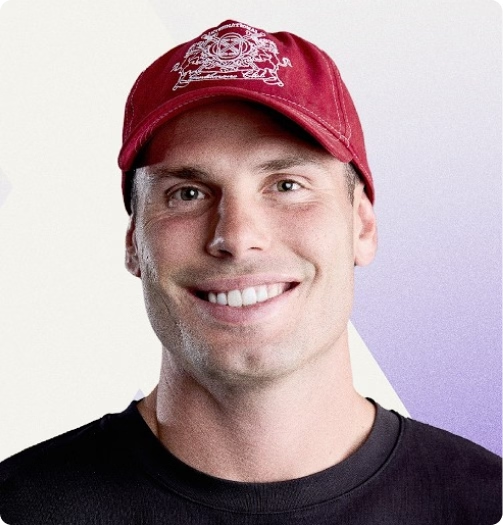
Steve Chapman
Serial entrepreneur and co-founder of Shine and Hyro
Steve Chapman is a serial entrepreneur and co-founder of Shine and Hyro, two game-changing beverage brands shaking up the energy and hydration markets. In this episode of The Agency Podcast, Steve shares his wild journey from being sued by Meta to building brands stocked in thousands of stores. He unpacks what it truly means to be an entrepreneur, the mindset needed to bounce back from failure, and why building a business is about more than just profit. It’s about impact, growth, and purpose. A powerful episode packed with honest insights and uplifting lessons.
Recommended Episodes
Check out our teams most highly recommended episodes.
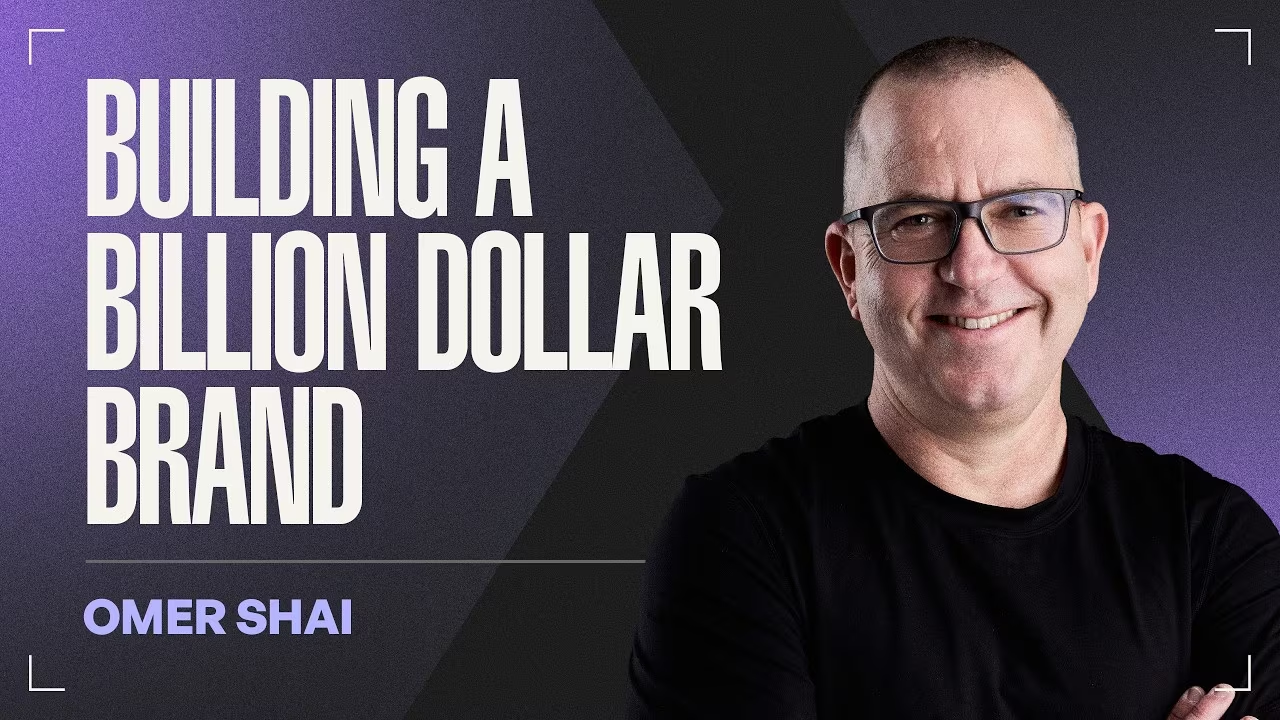
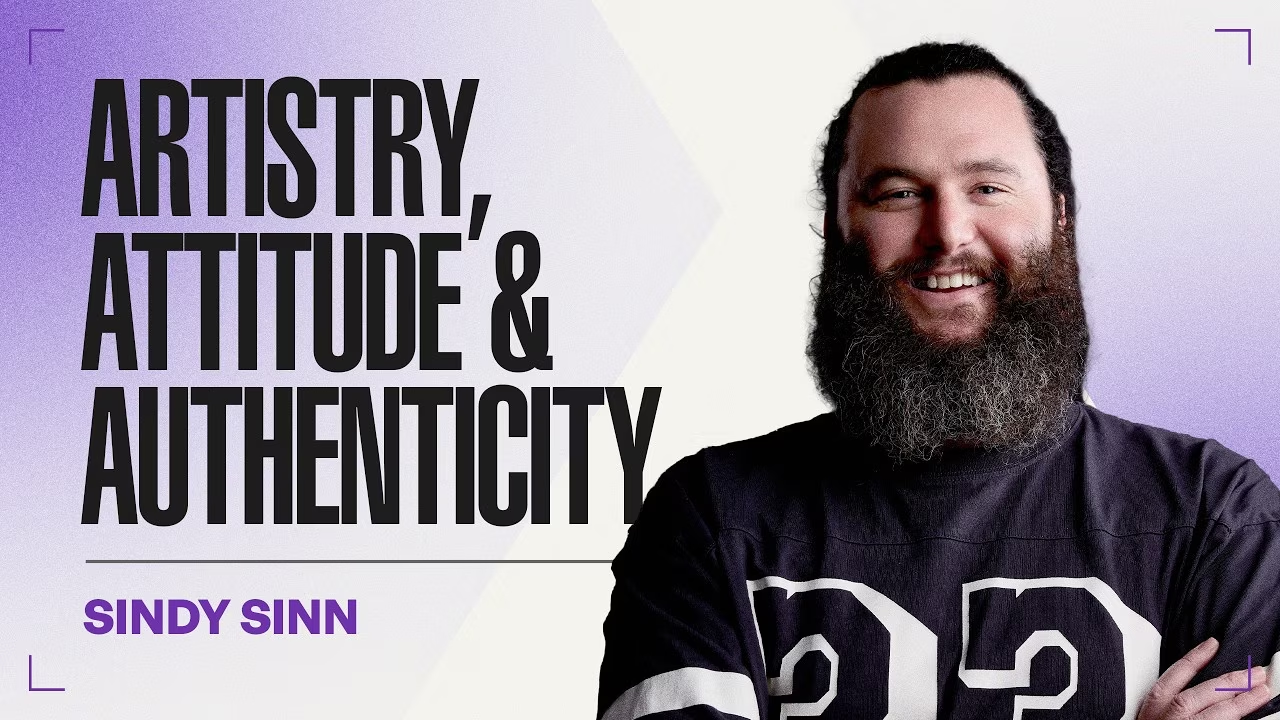
%2520(1).avif)
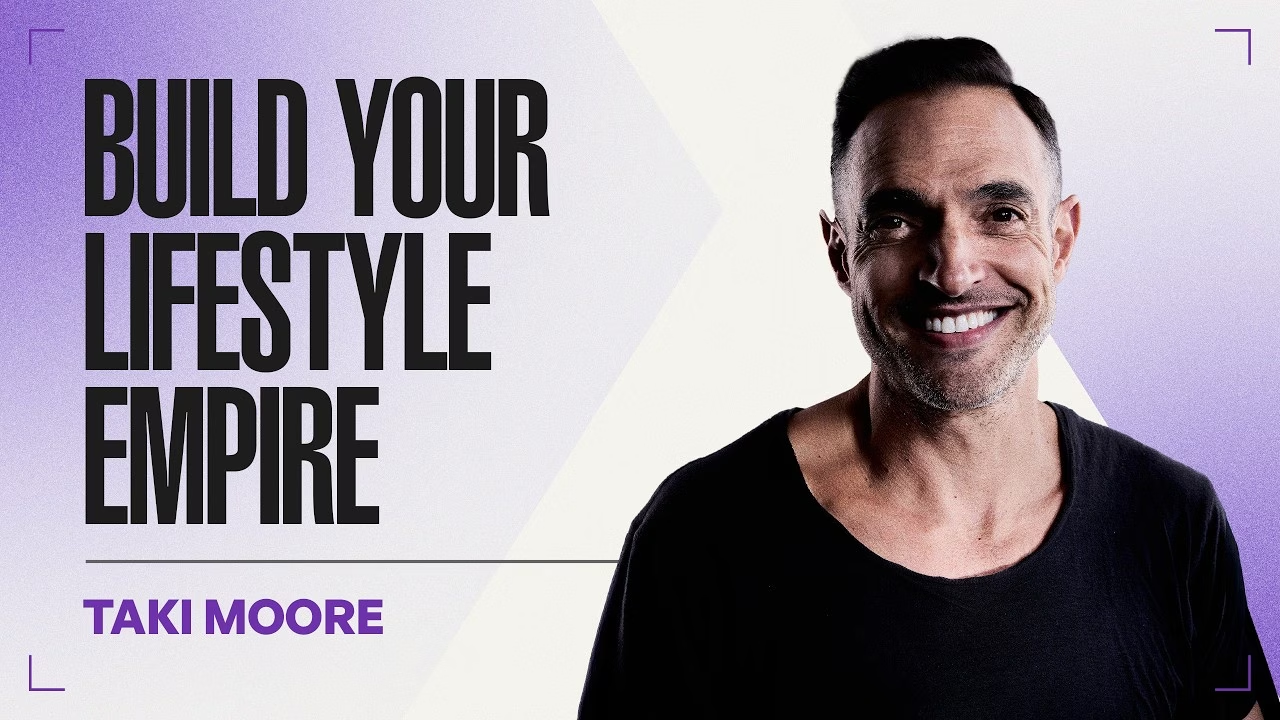
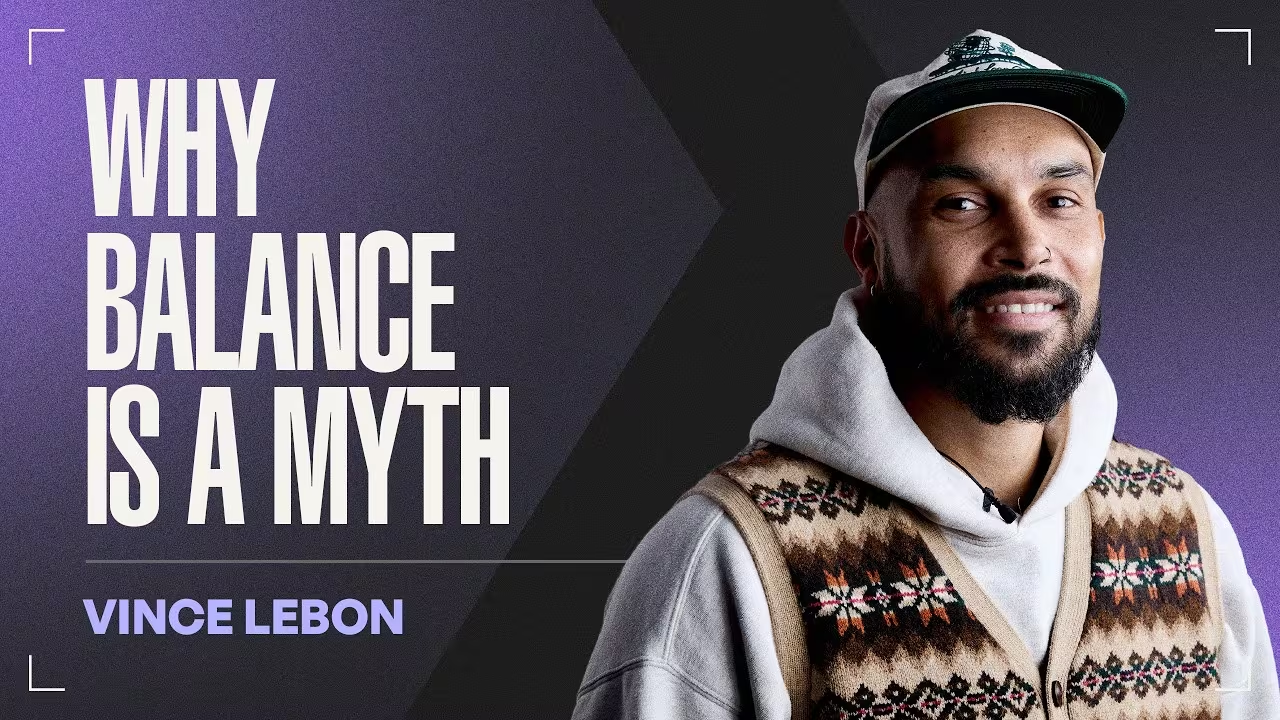
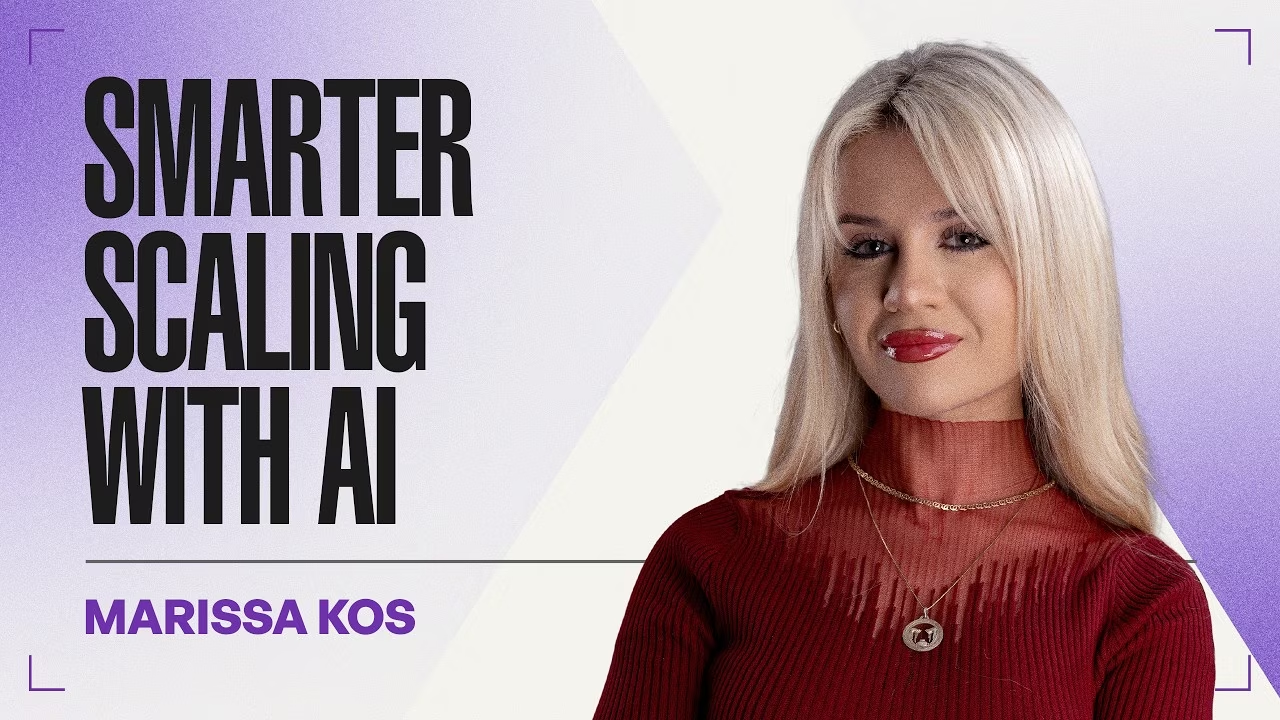
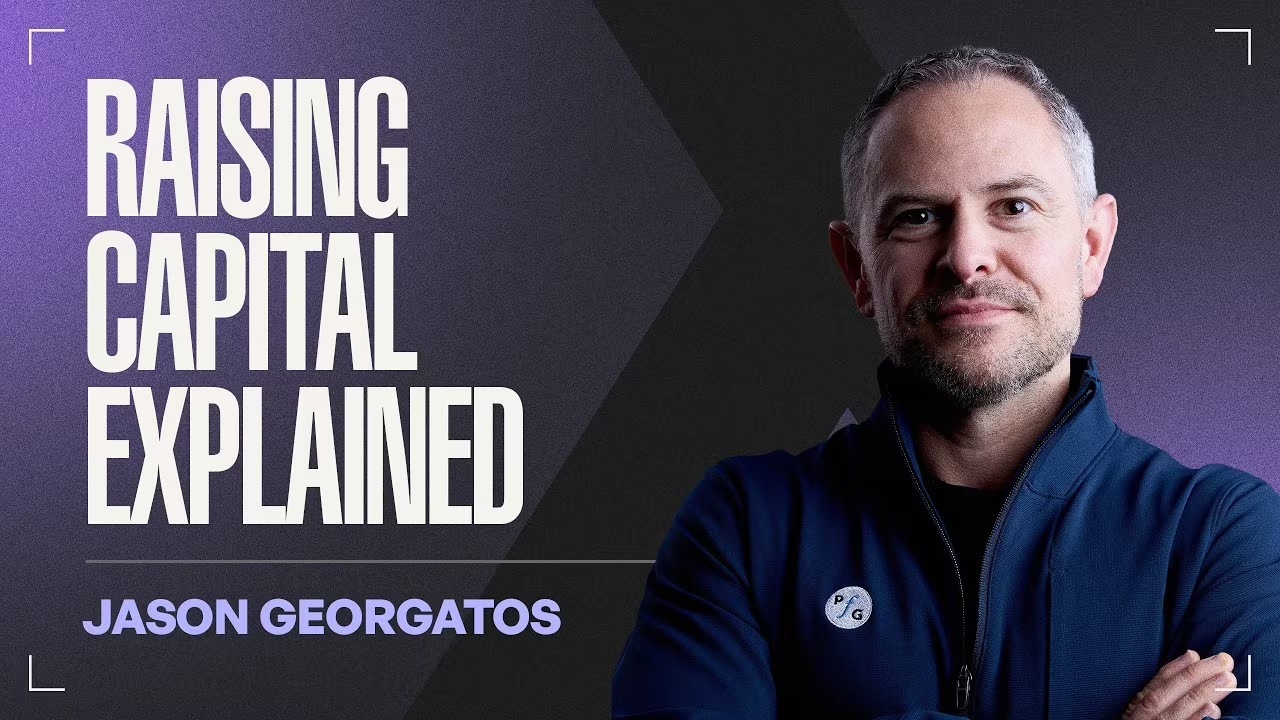

Steve Chapman
Steve Chapman is a serial entrepreneur and co-founder of Shine and Hyro, two game-changing beverage brands shaking up the energy and hydration markets. In this episode of The Agency Podcast, Steve shares his wild journey from being sued by Meta to building brands stocked in thousands of stores. He unpacks what it truly means to be an entrepreneur, the mindset needed to bounce back from failure, and why building a business is about more than just profit. It’s about impact, growth, and purpose. A powerful episode packed with honest insights and uplifting lessons.
Let's Keep Connected
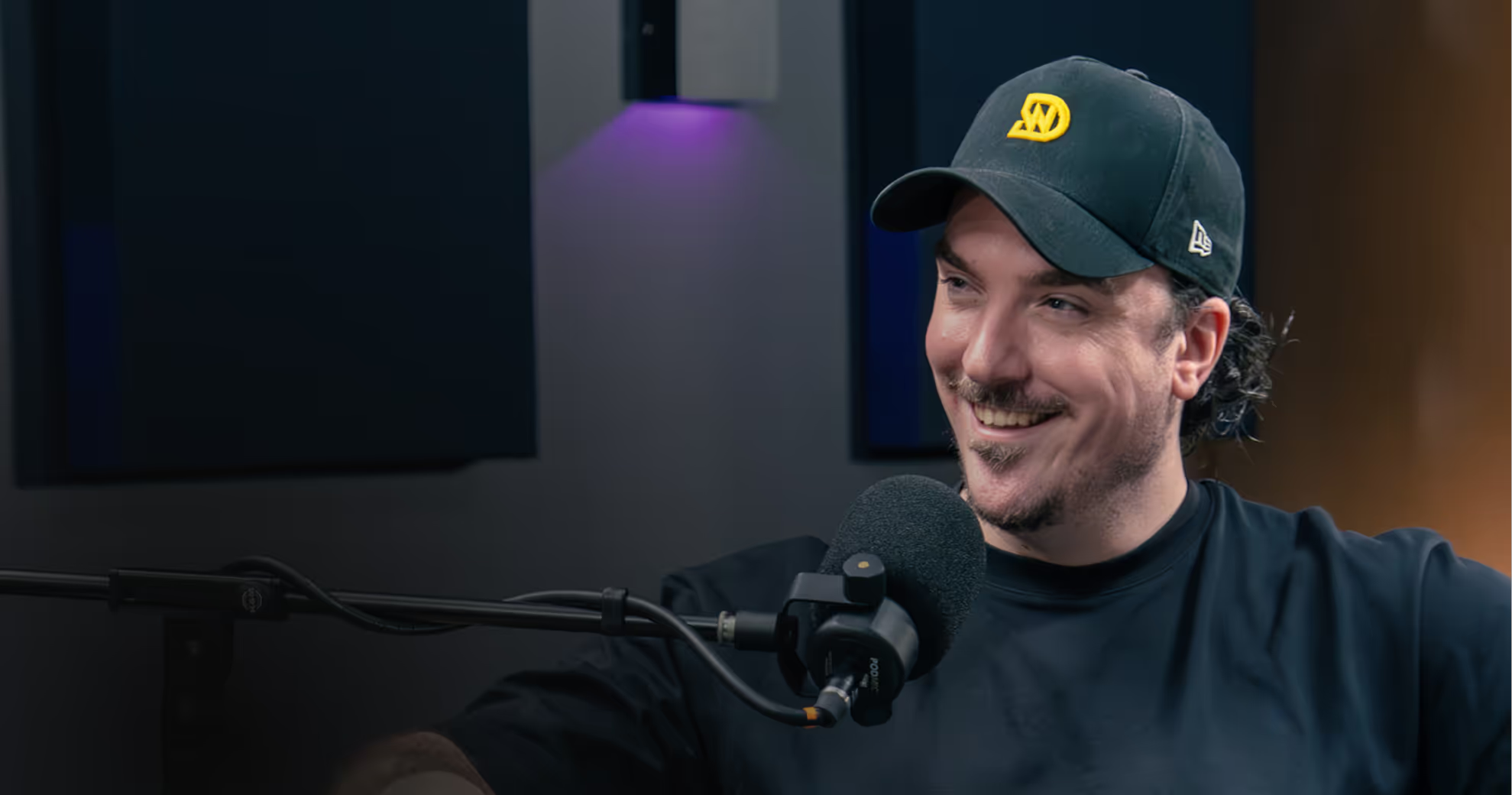
Work With Me
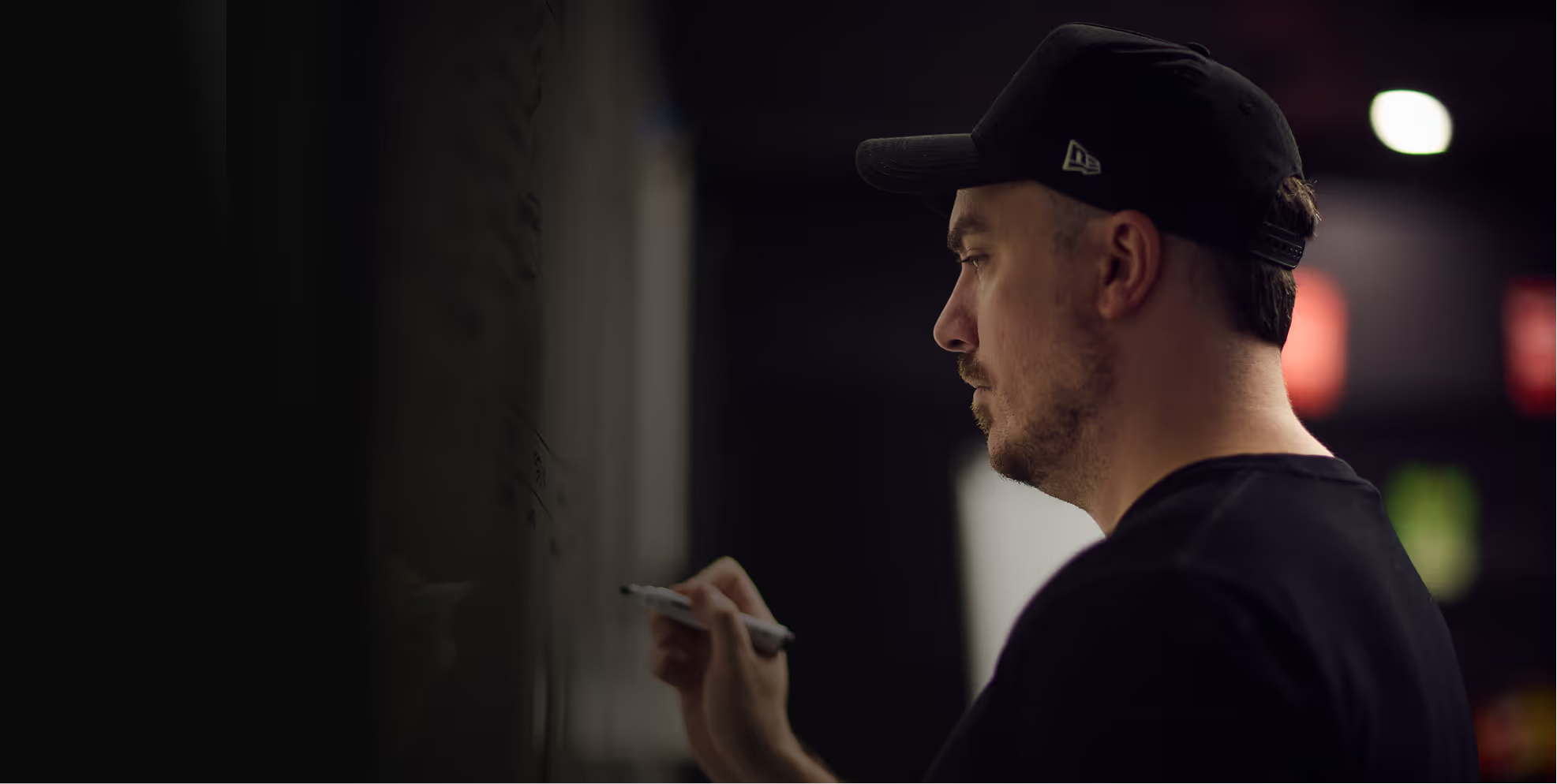
Enquire With Dain’s Team
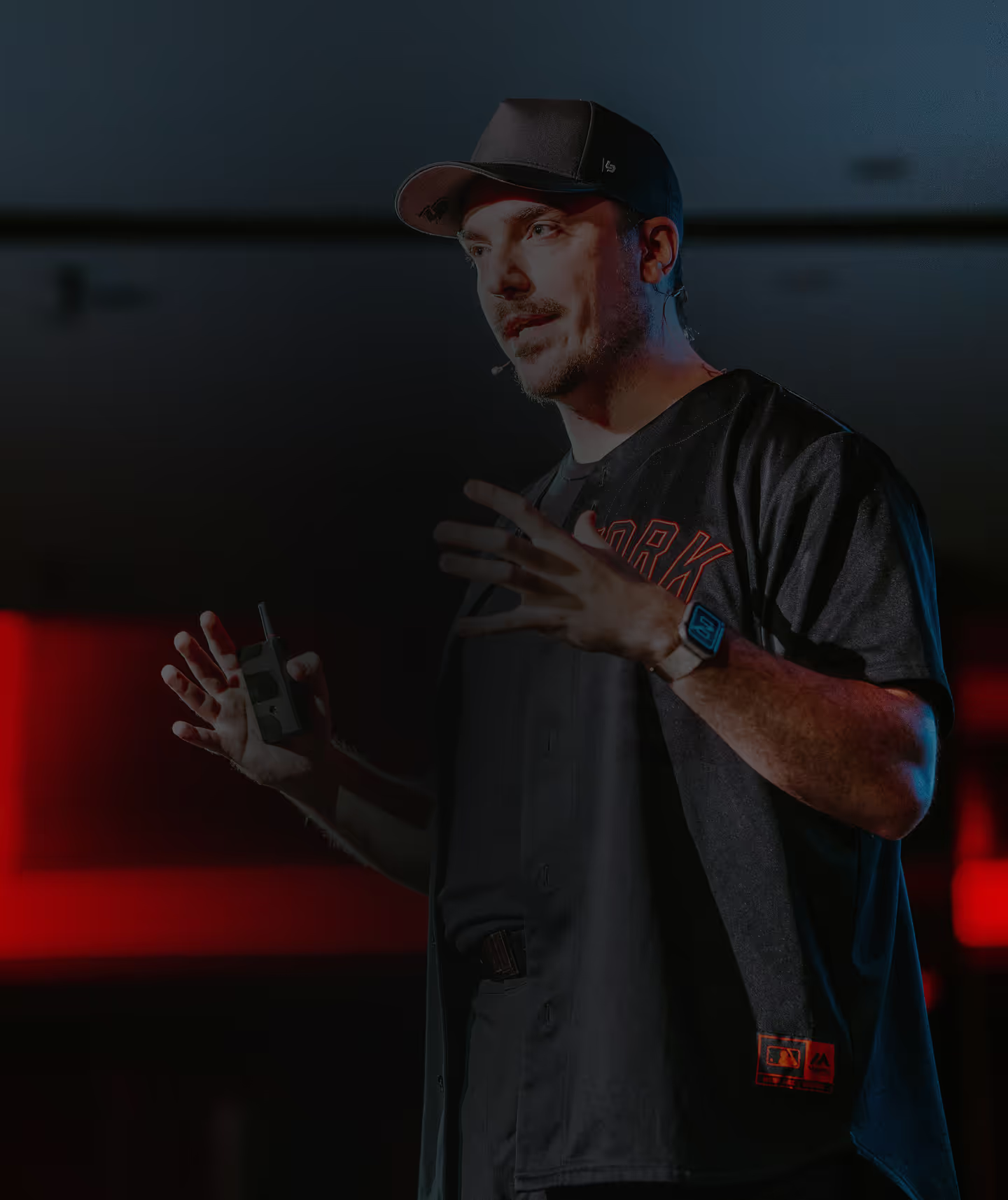
Enquire For Speaking

Let's Get You Branded
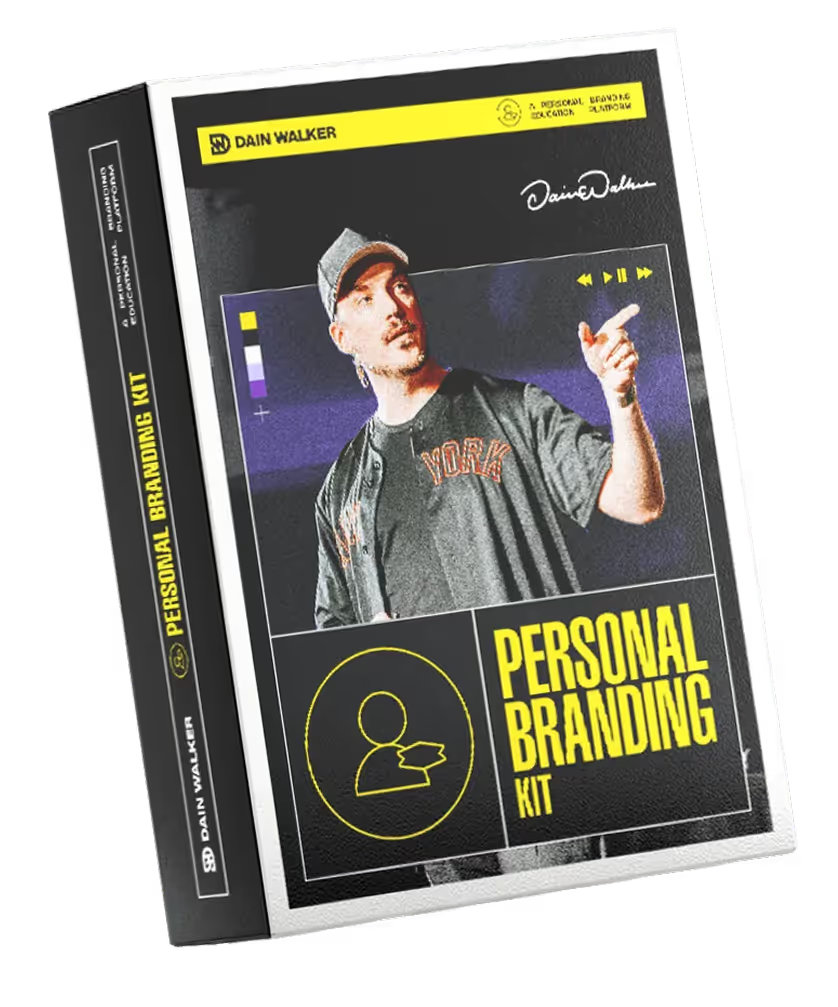
Apply to be a guest
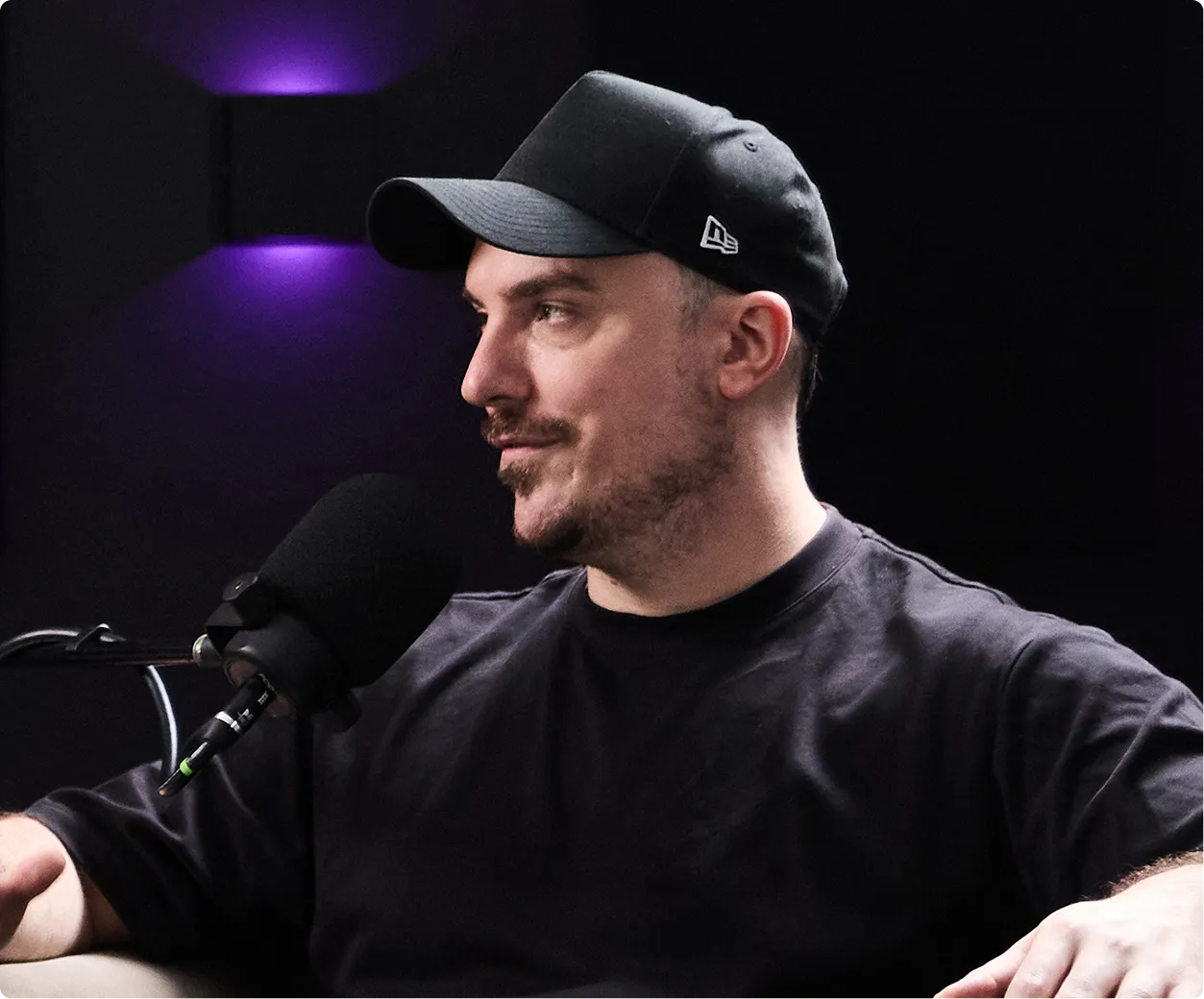
Dive into insights from industry leaders and experts.
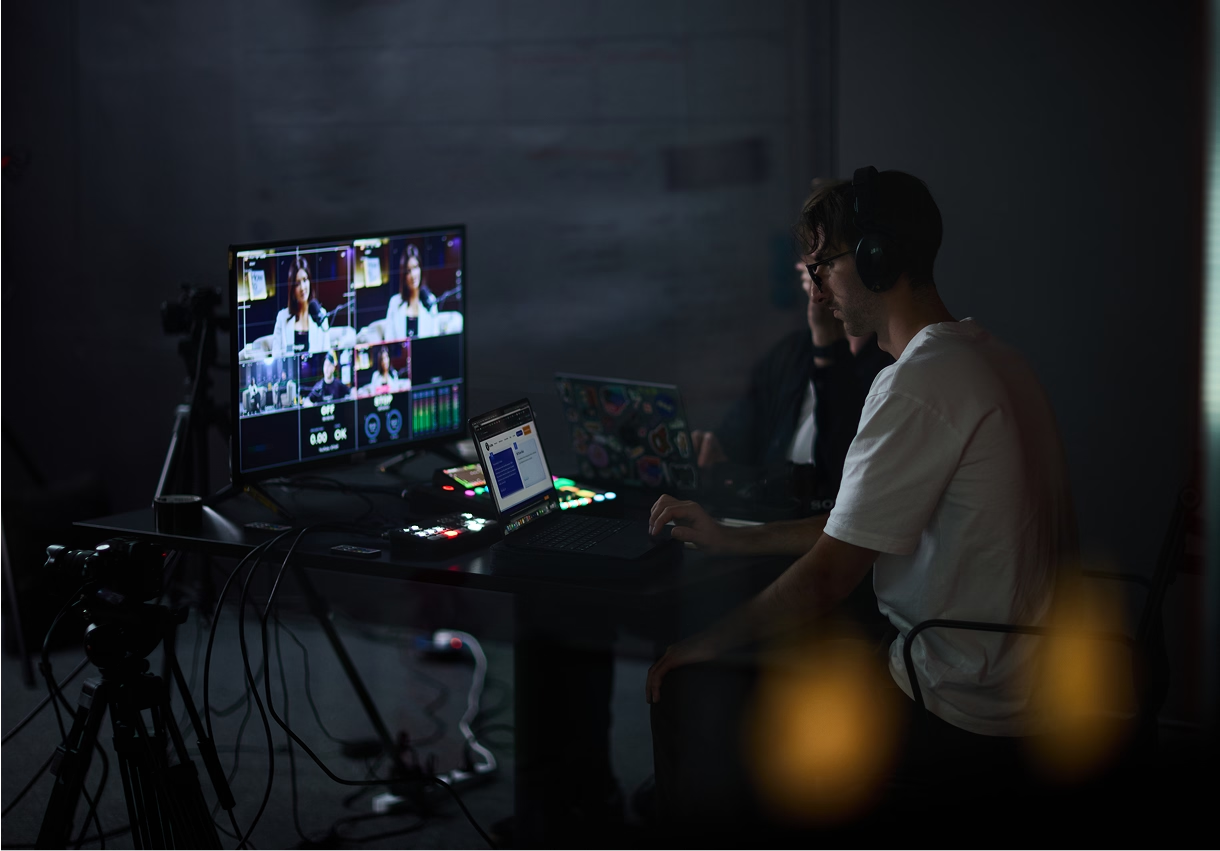
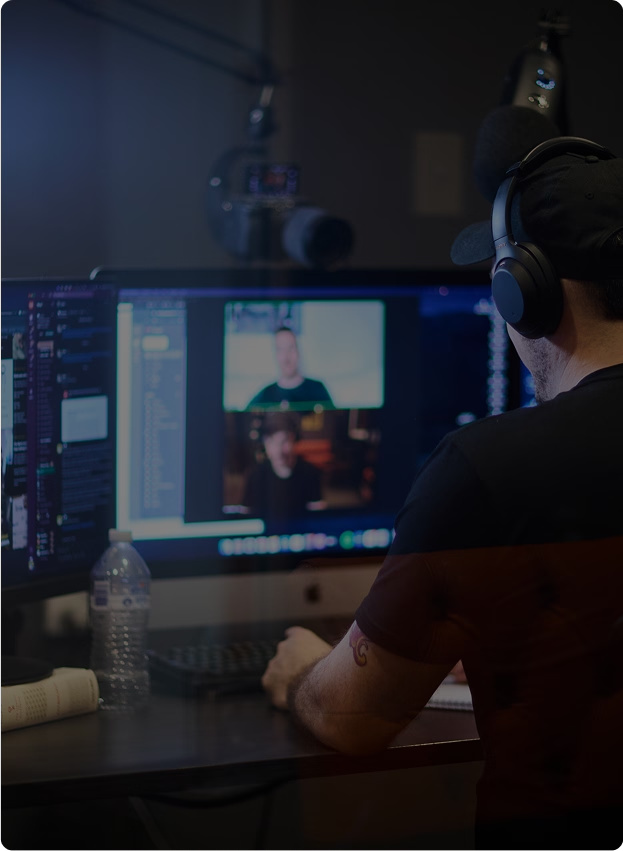
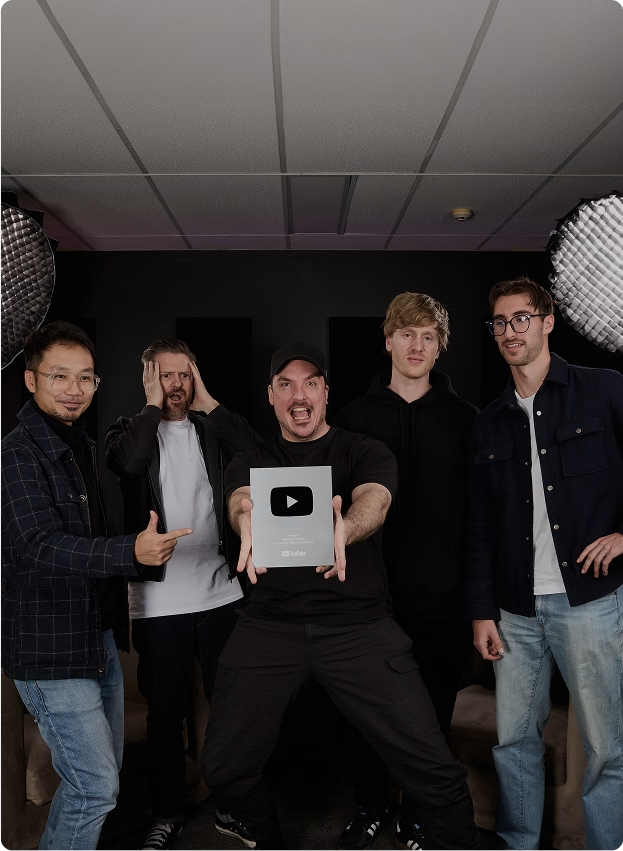
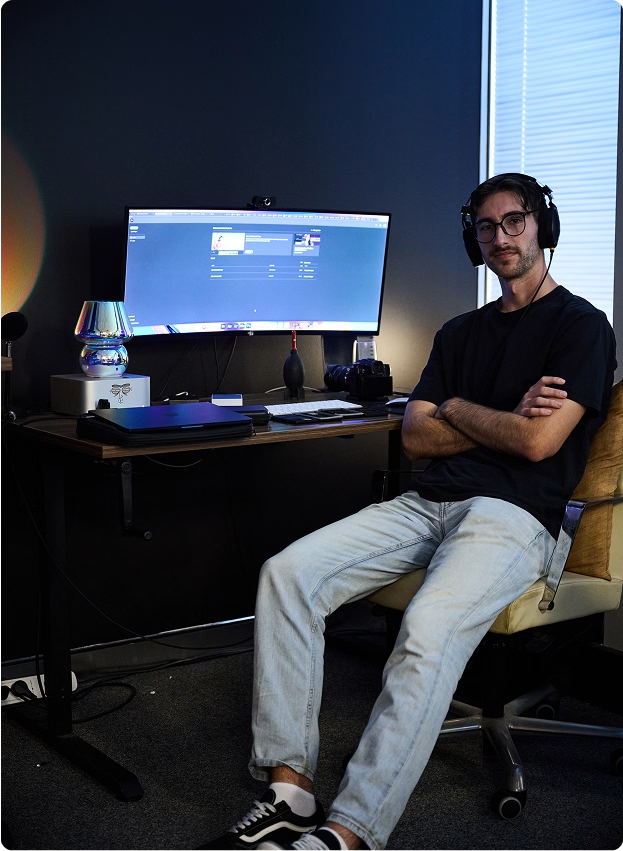
Stream now
Dive into expert advice and industry trends.
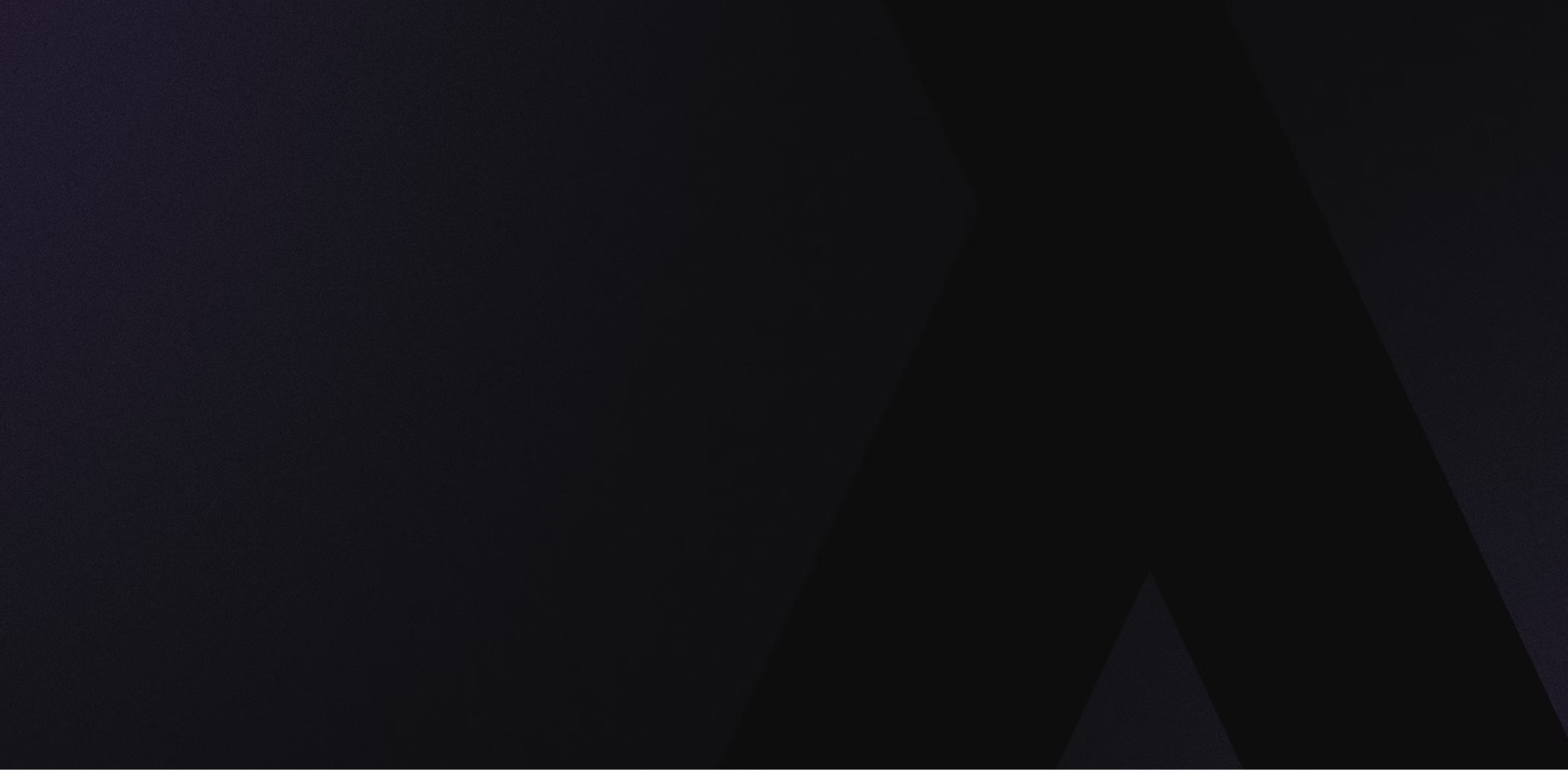

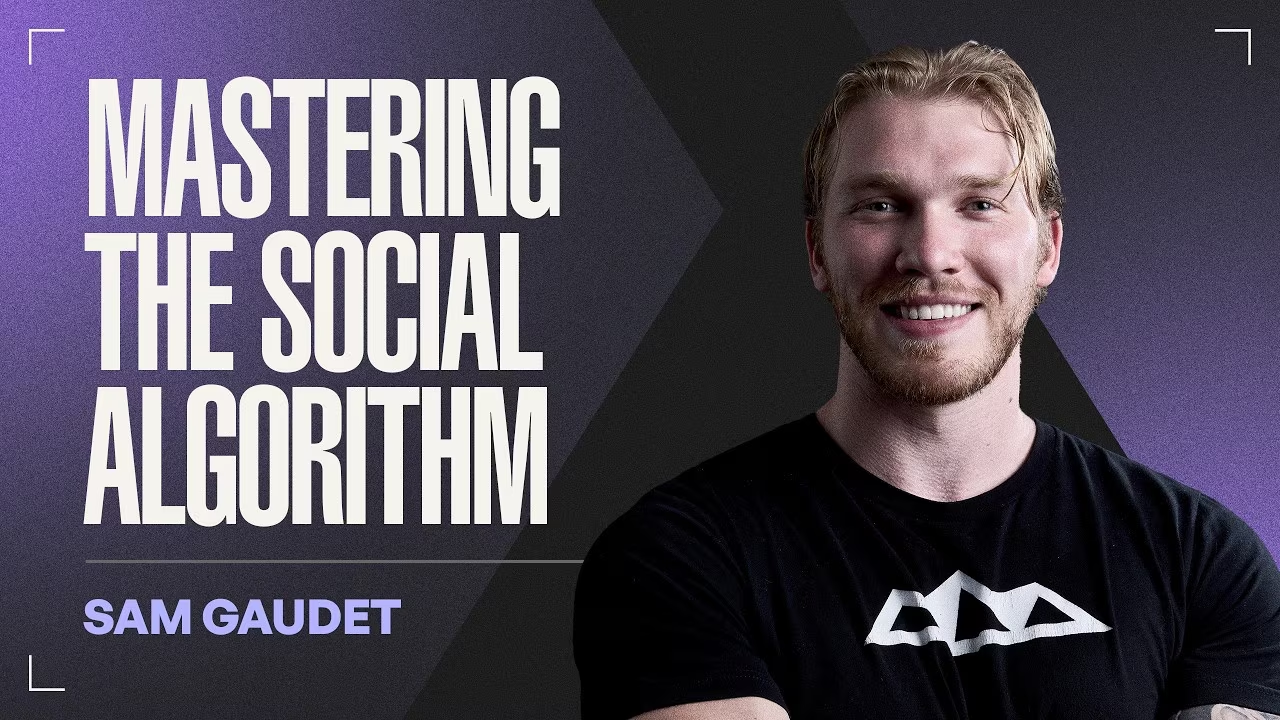
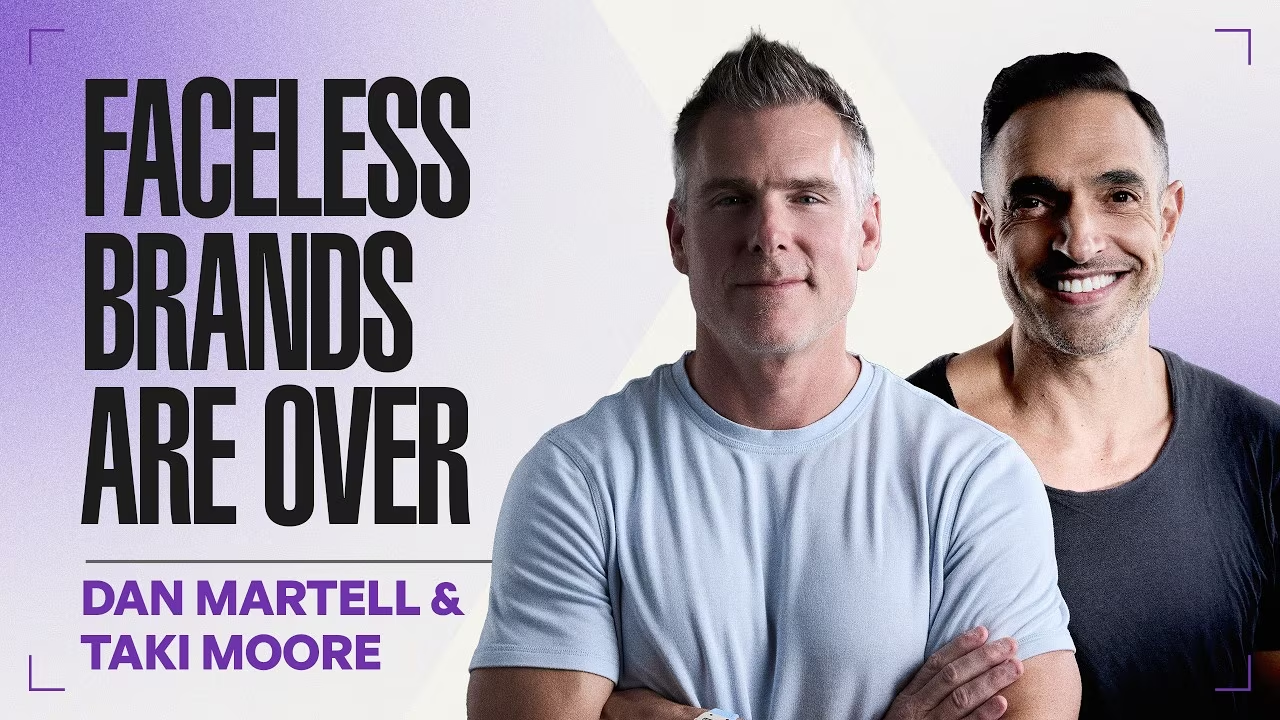
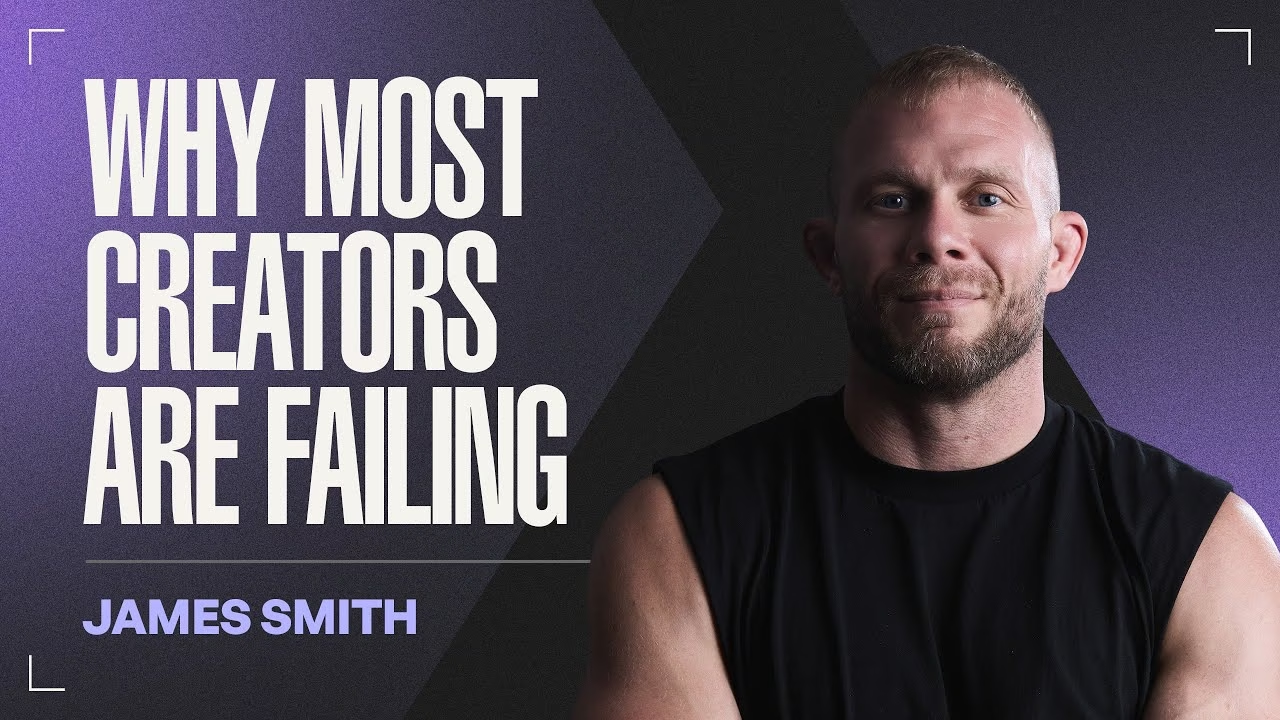
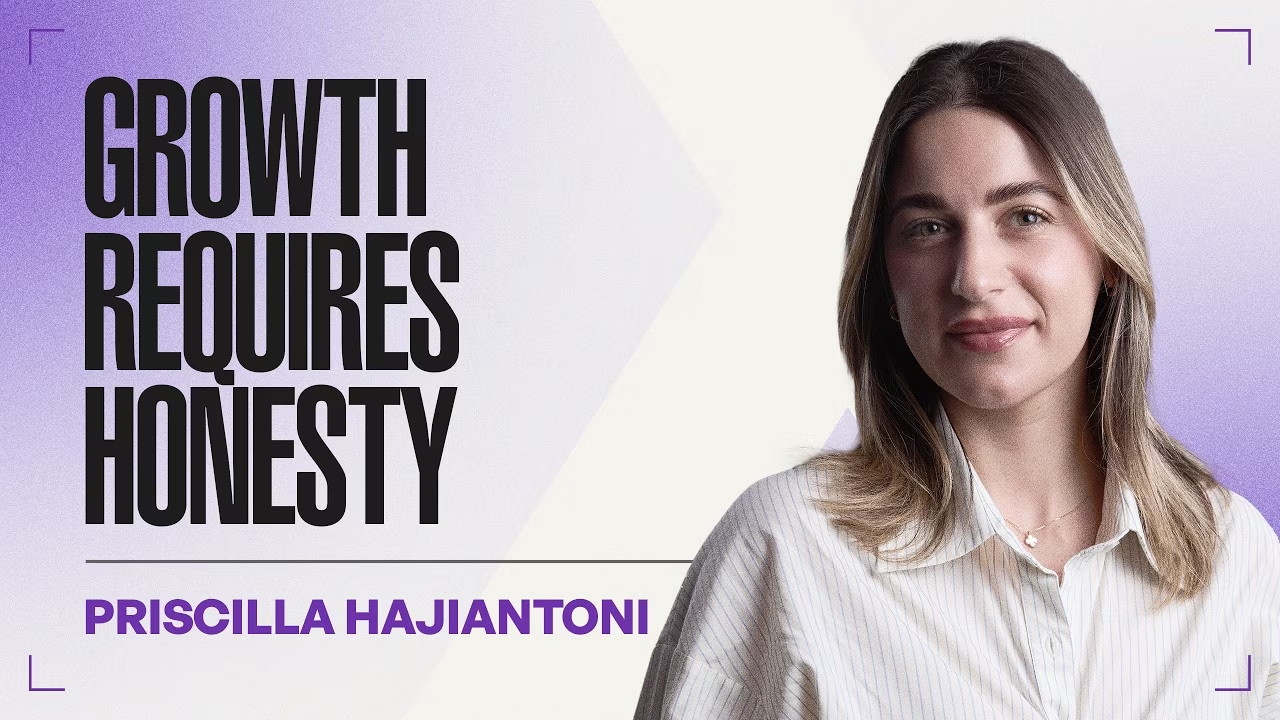
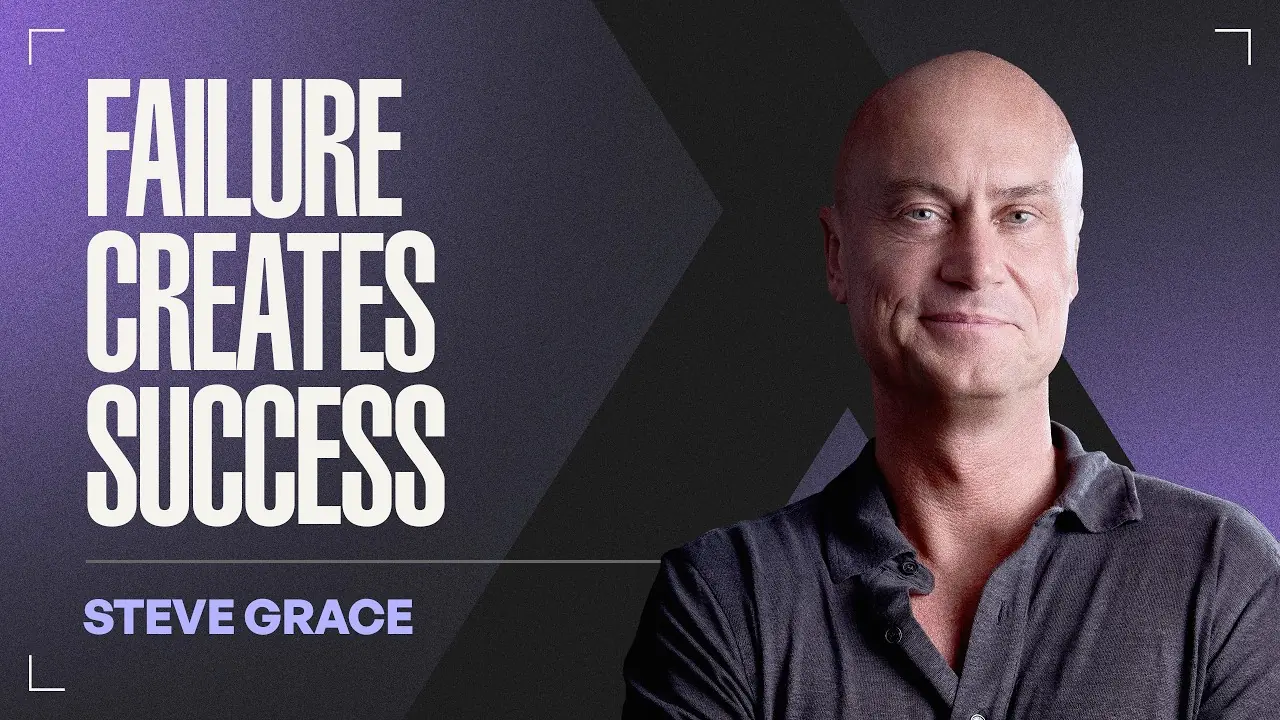
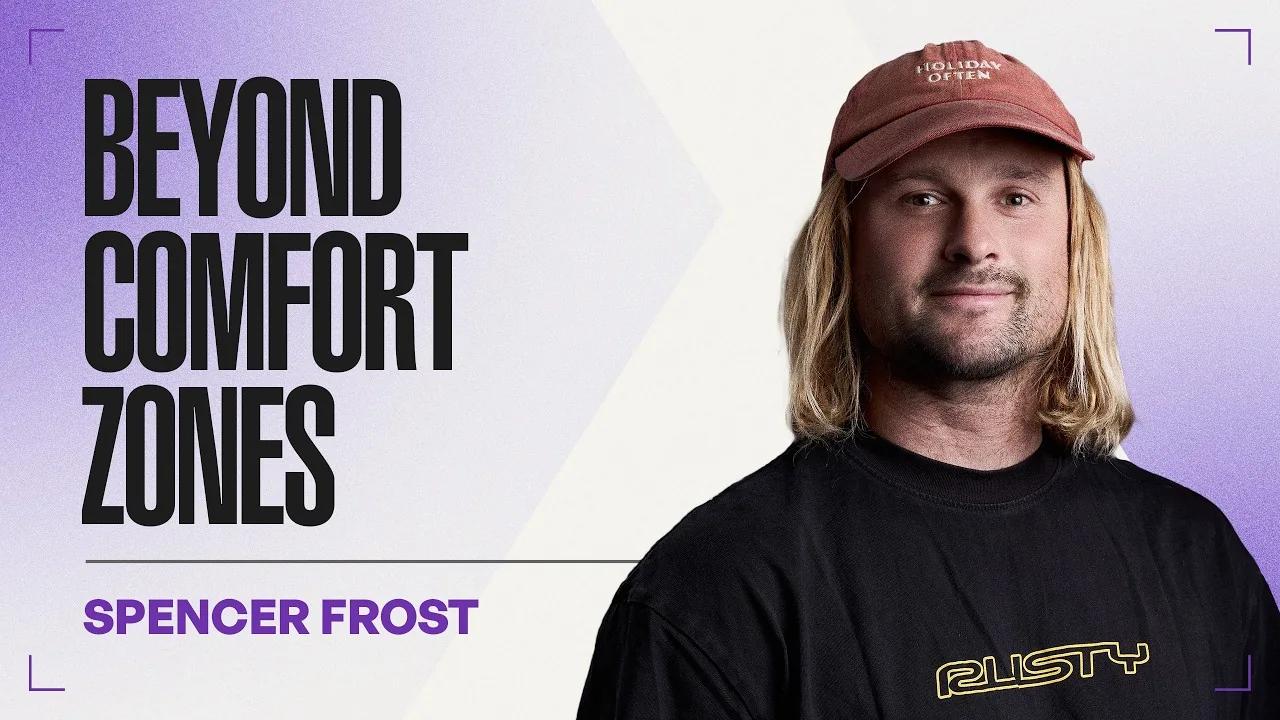
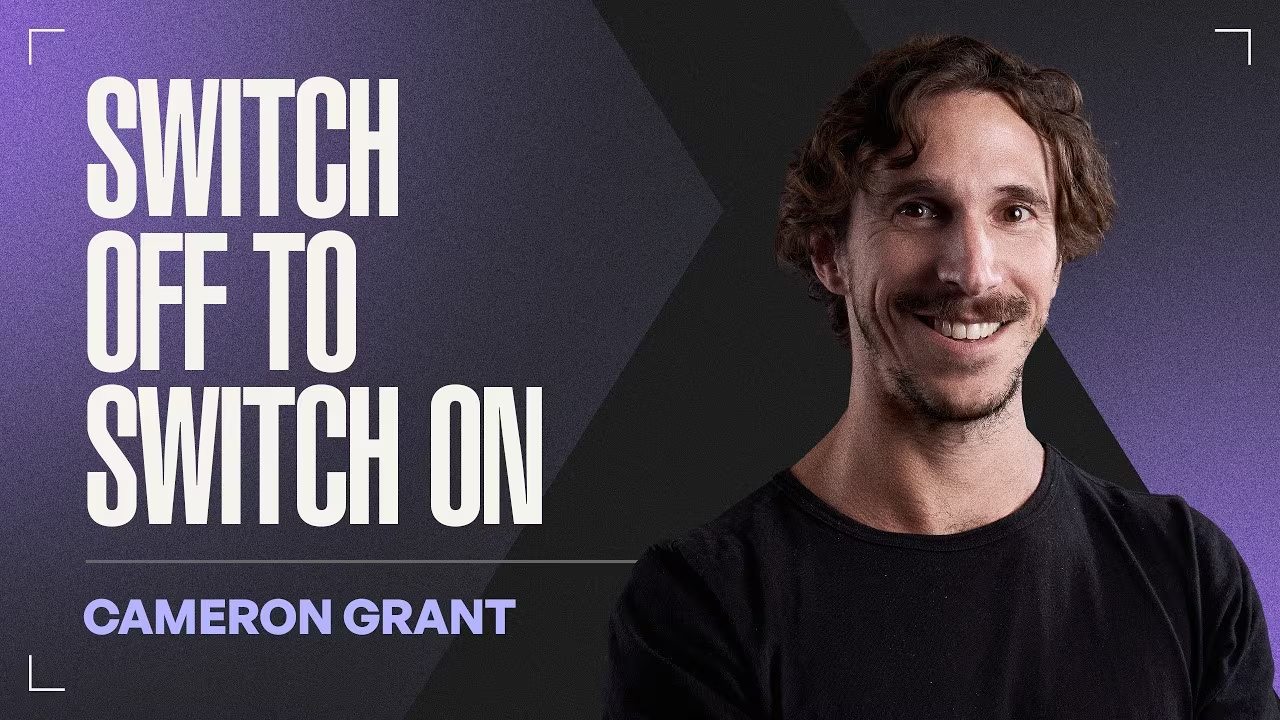
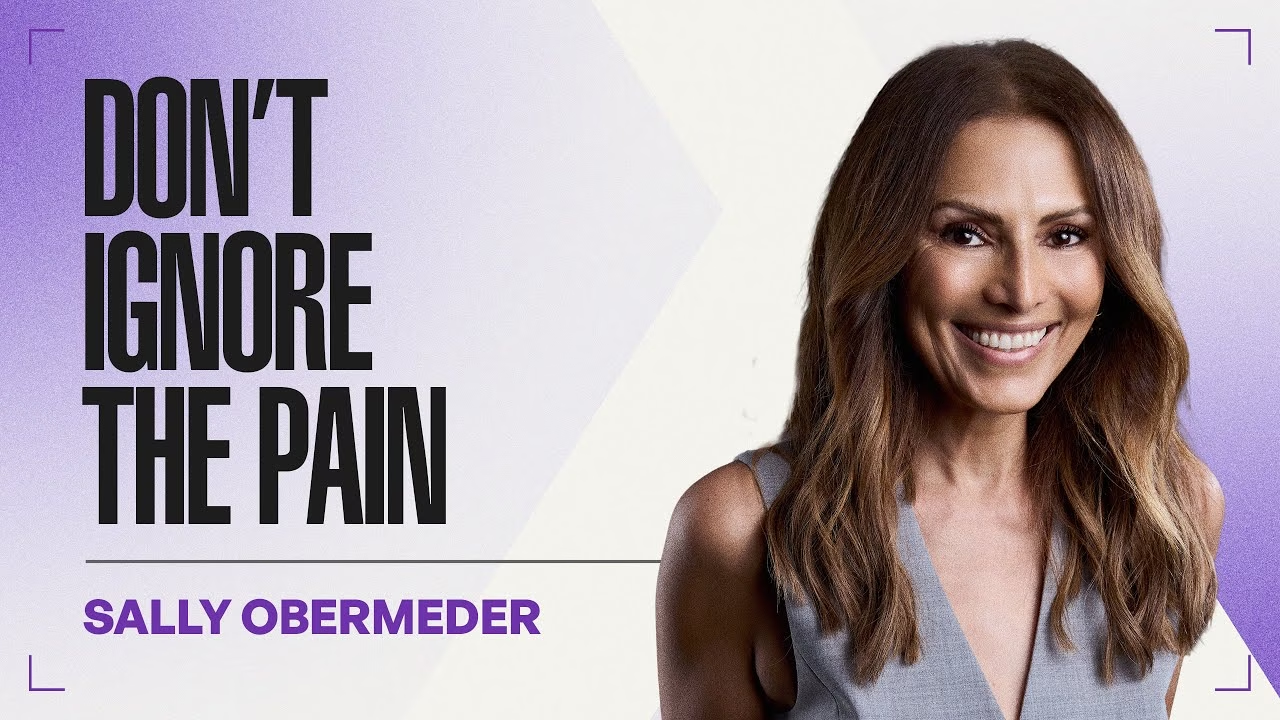
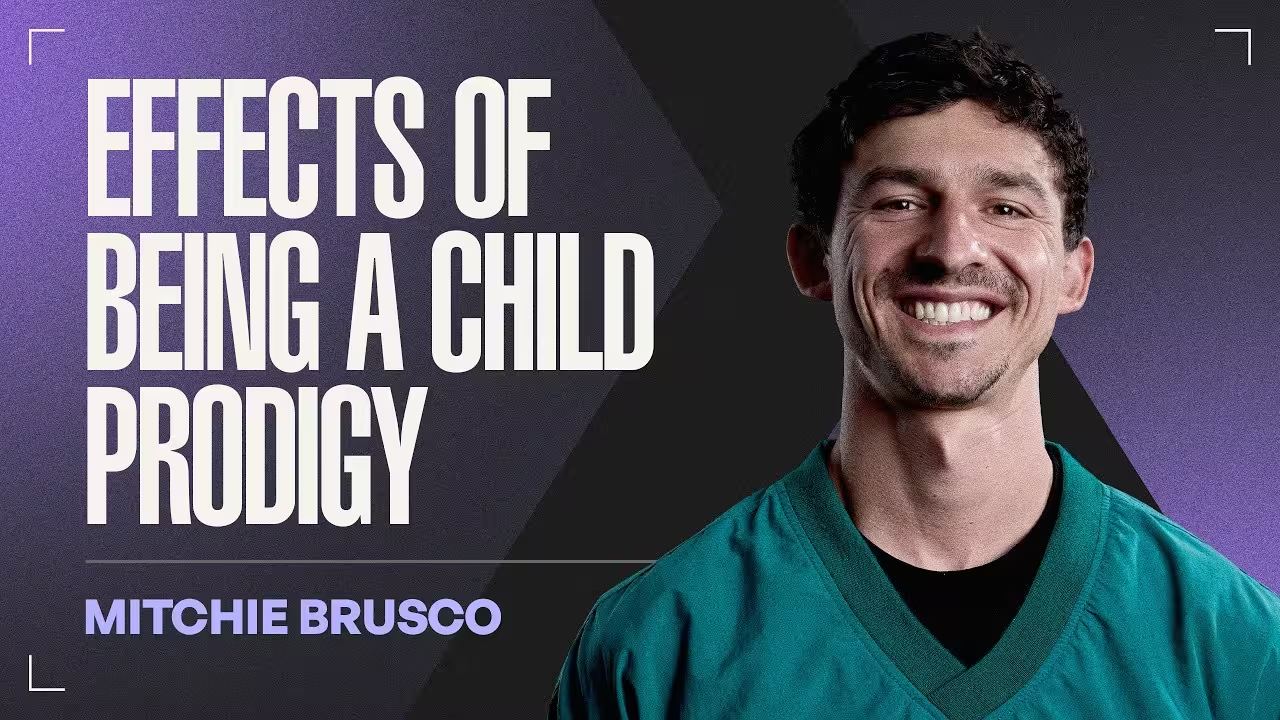
.avif)
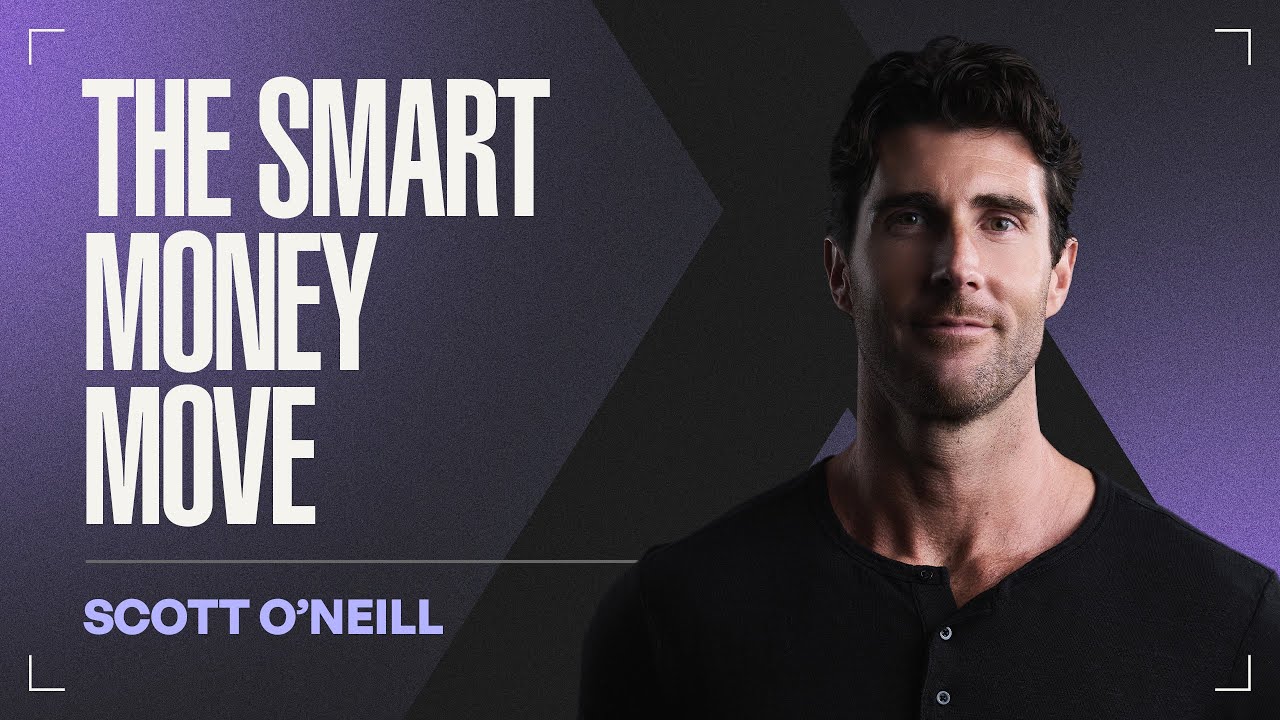
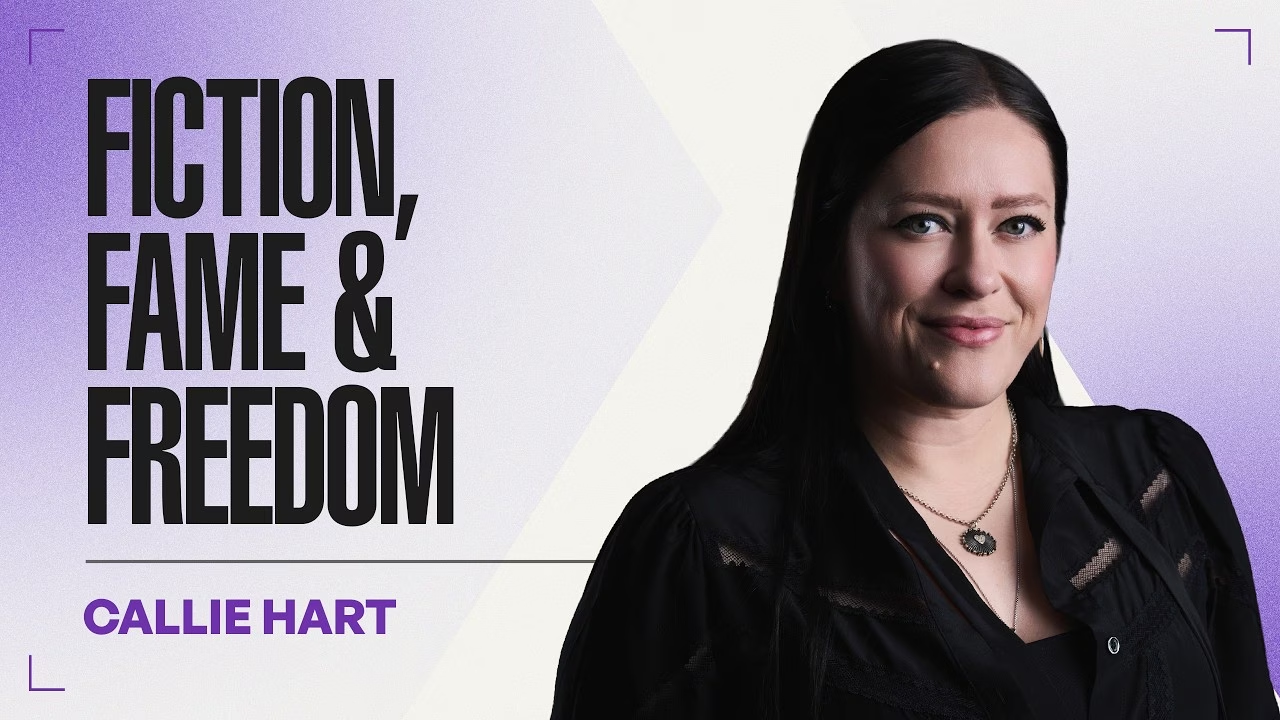

.avif)
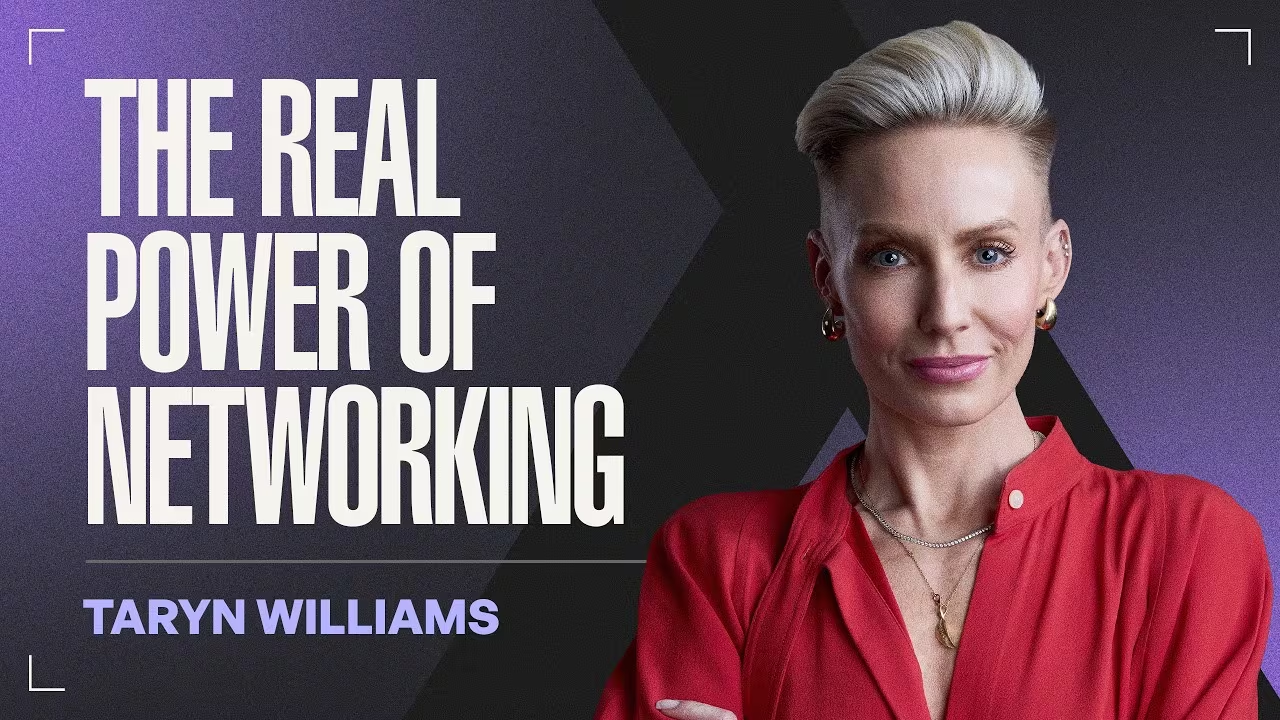

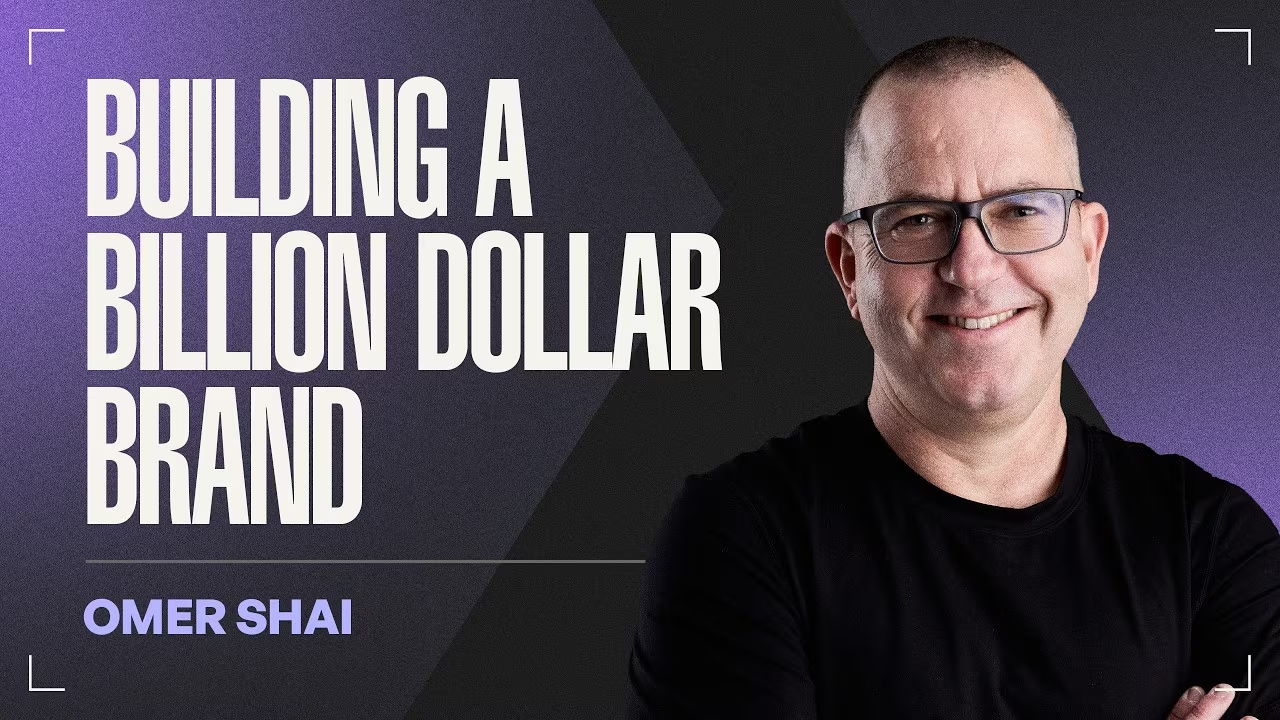
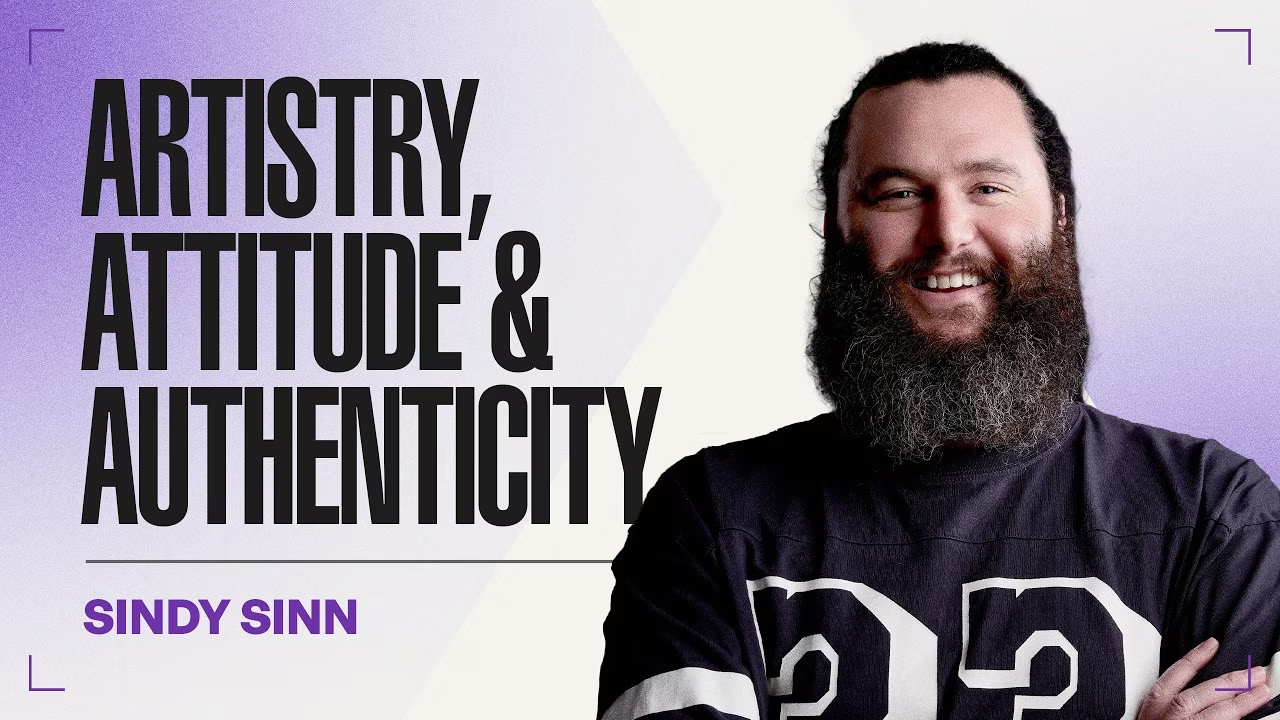
%20(1).avif)
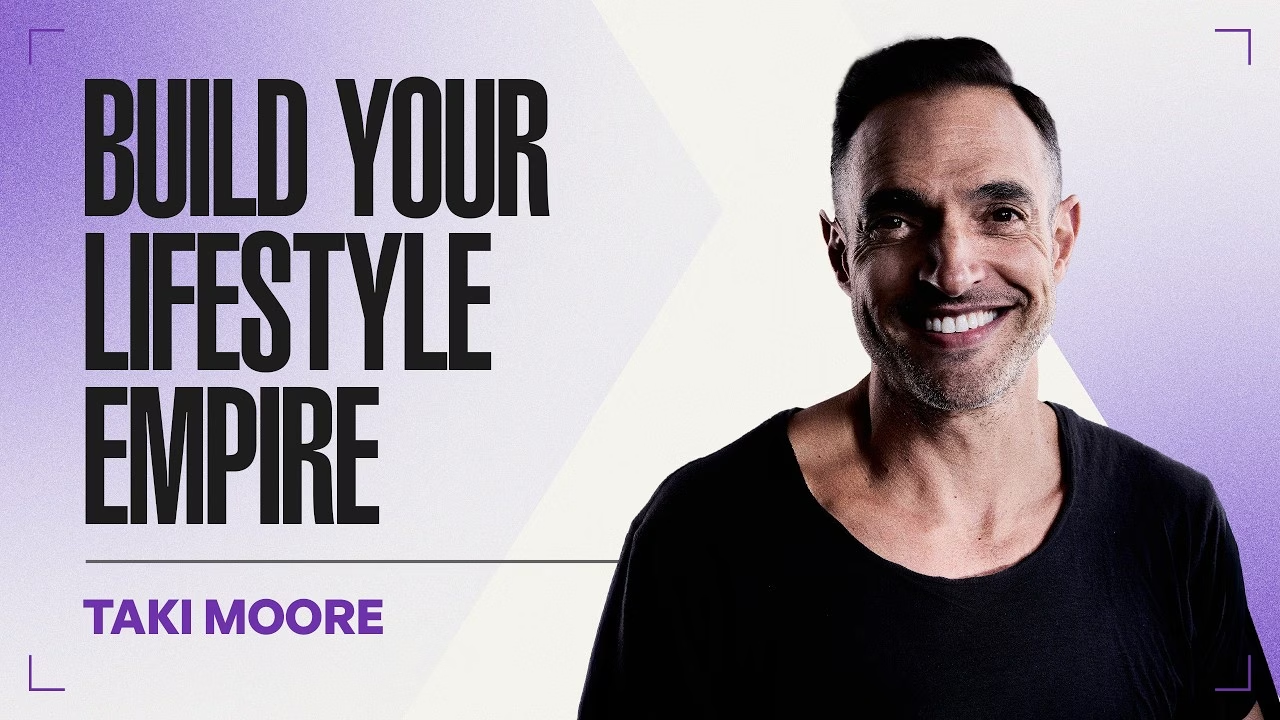
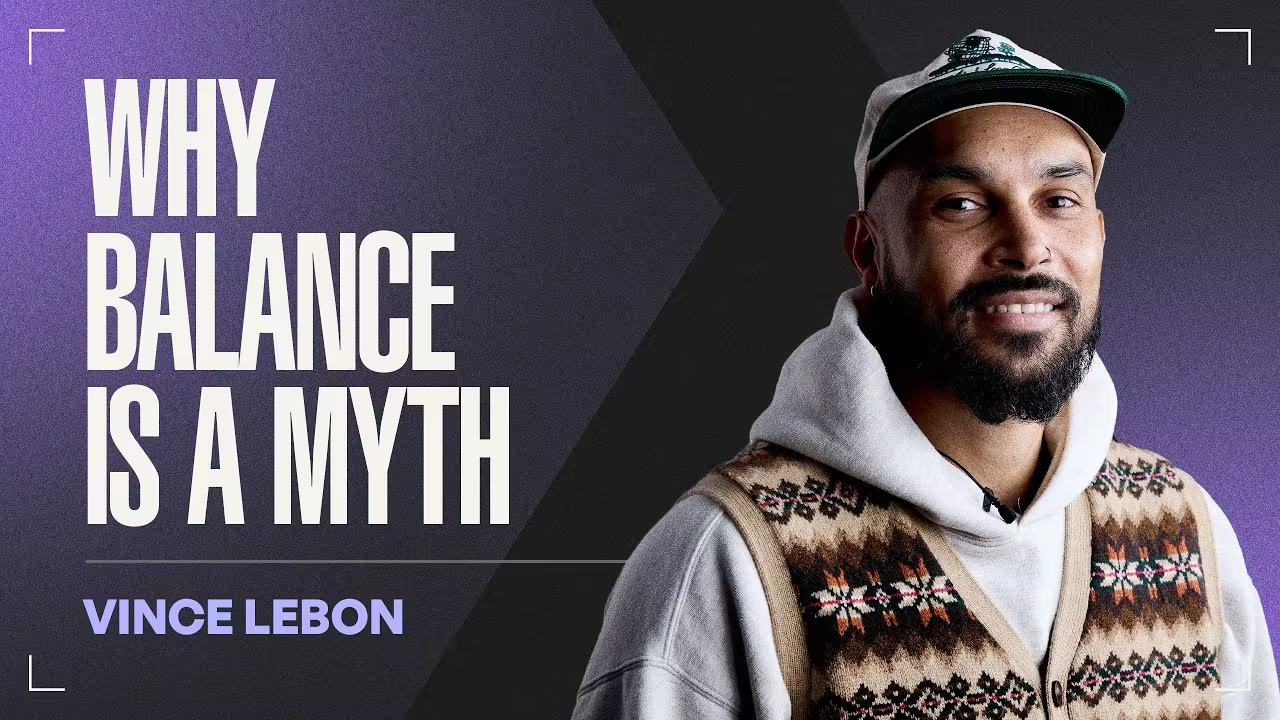
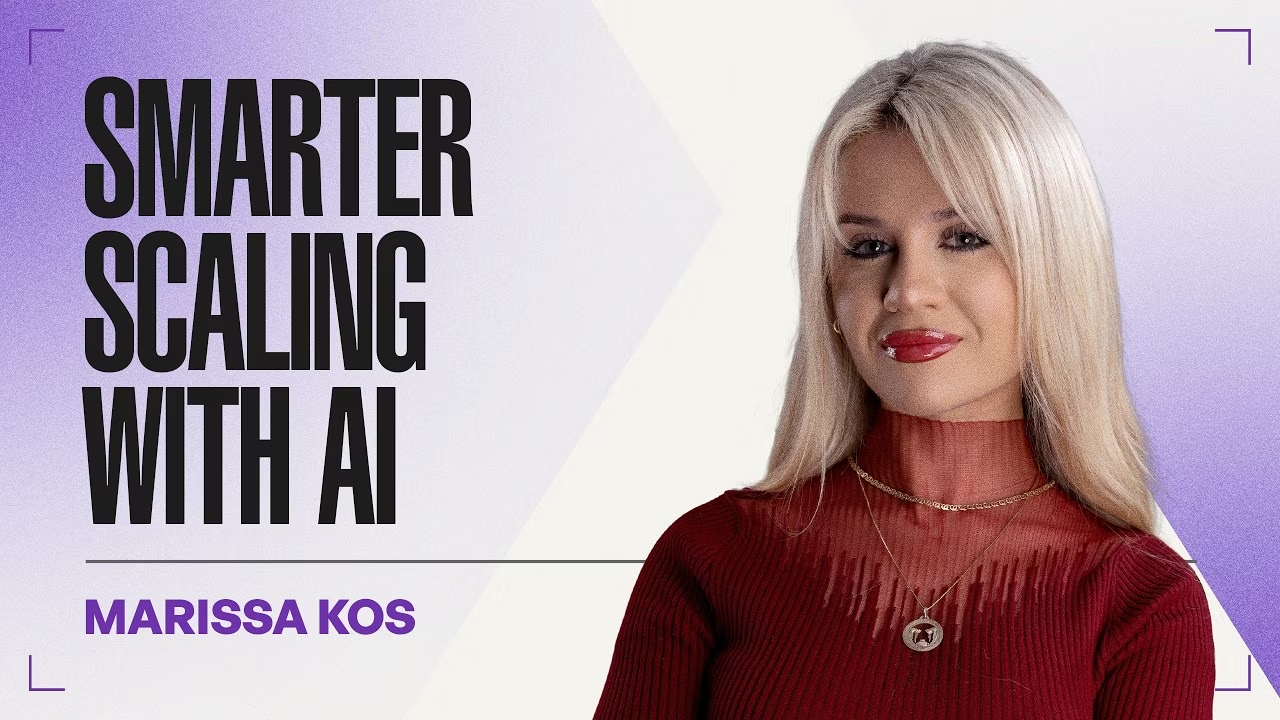
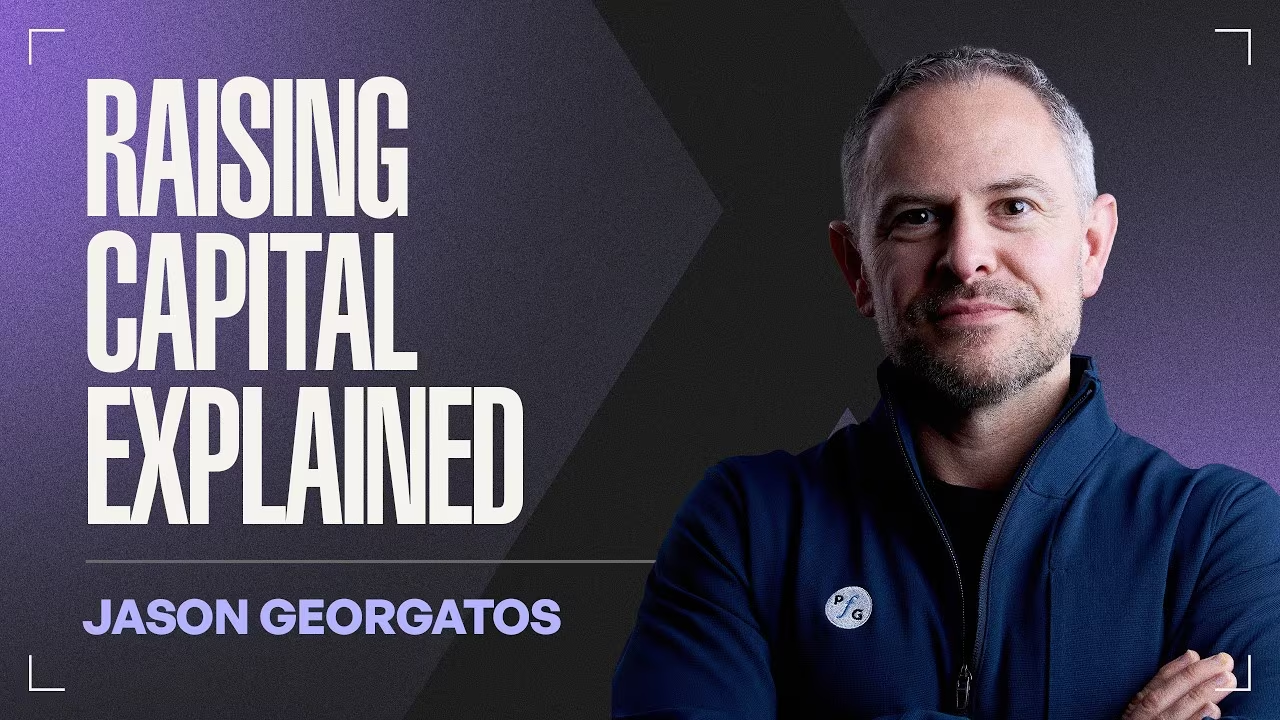
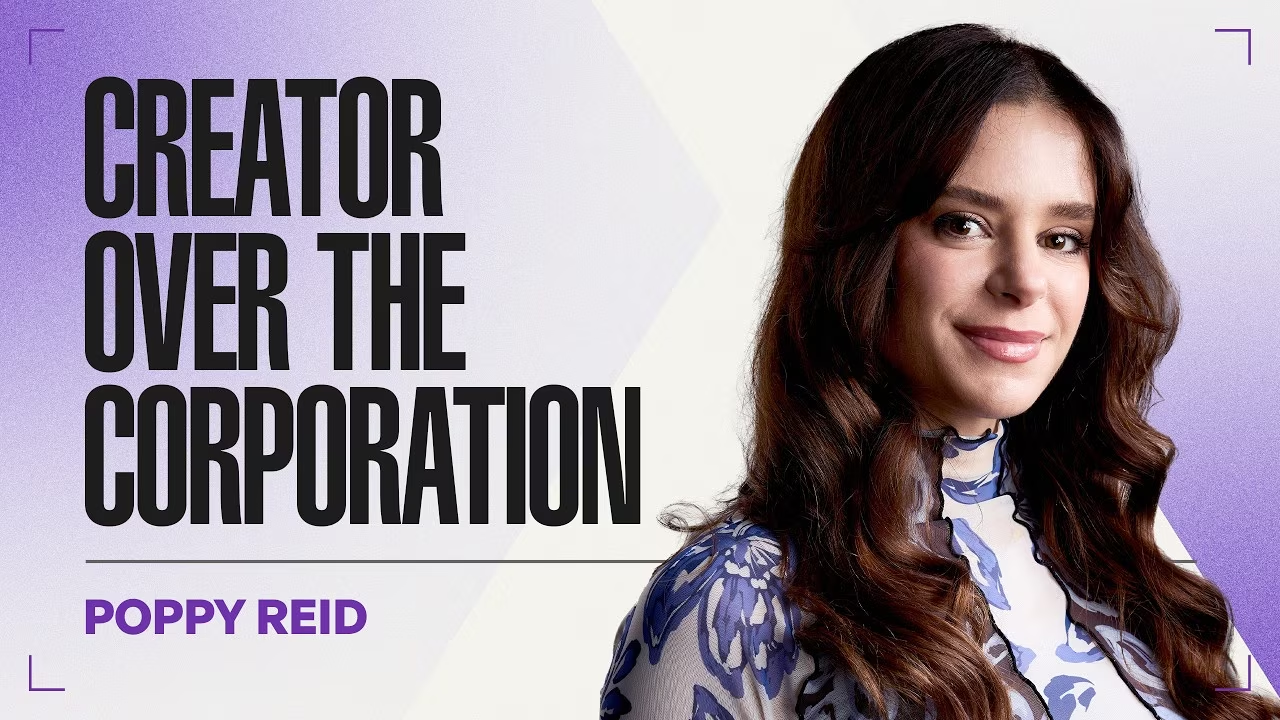
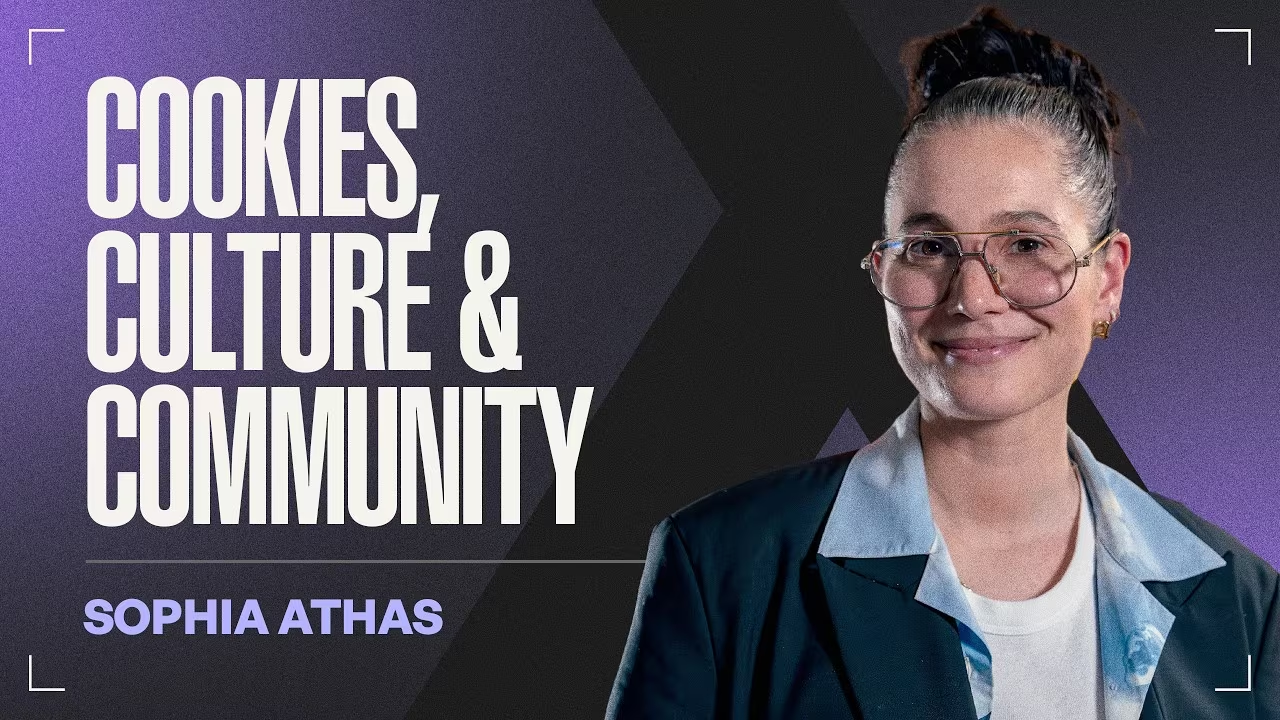

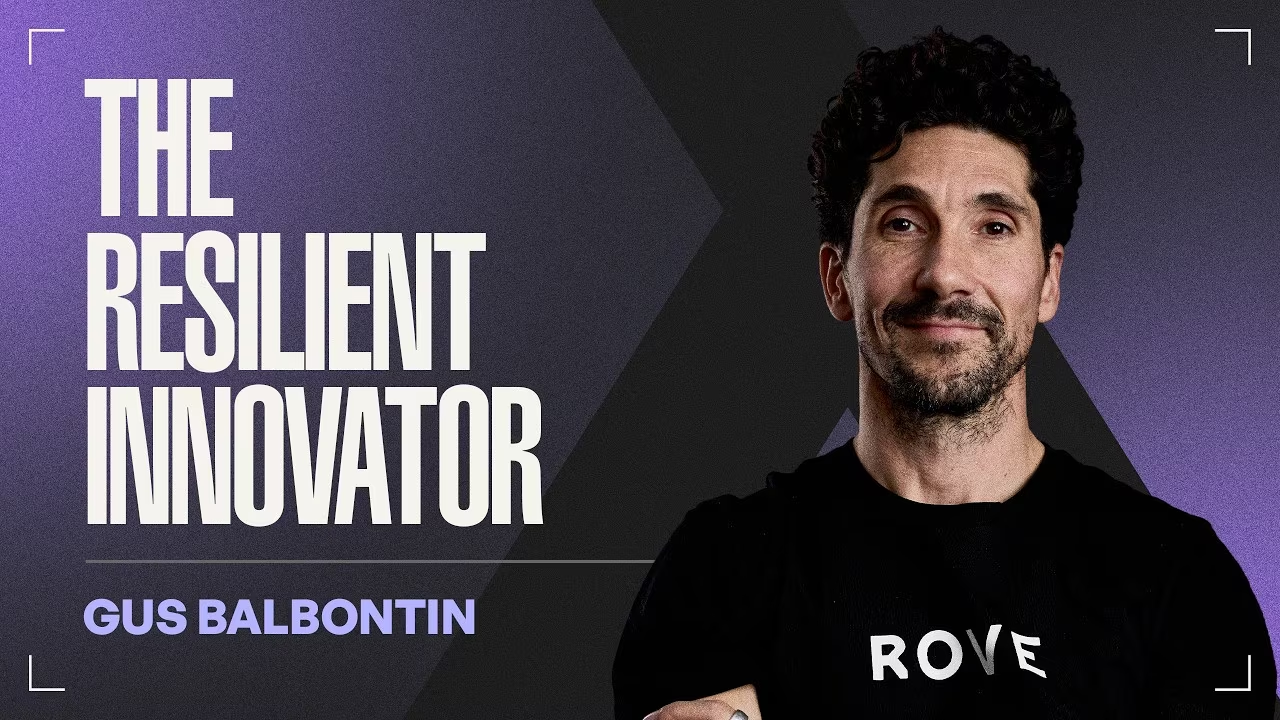
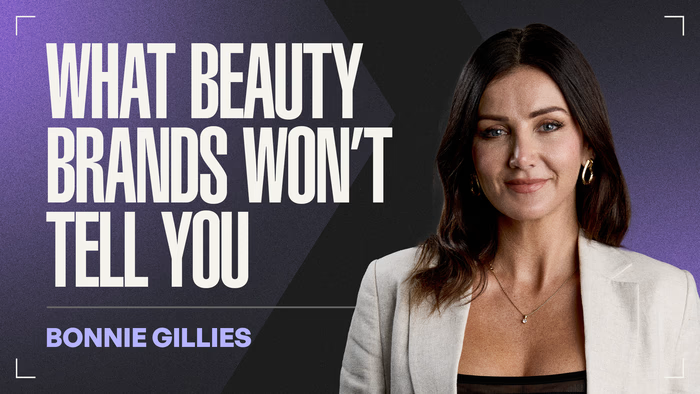


.avif)

